

How to Get Your Captain’s License –A Step-by-Step Guide
From captain requirements to the coast guard application process – how to navigate the process of becoming an official boat captain.

Like all other areas of professional endeavor, getting a Captain’s license is an essential and non-trivial process. Despite the years between my earliest thoughts on having one and actually applying…or perhaps because of that time…I am quite proud to call myself Captain !
From the time I was Quartermaster aboard the Chesapeake Lightship back when she was berthed in Washington, DC, I had wanted to get my Captain’s license. We in her crew had plenty of sea time. The late Capt. Joe Murray, John Hart, and particularly Chris Krusa saw to it that each of us developed our skills and knowledge beyond the minimum that we needed for our jobs. We met collectively with a Coast Guard officer to explore the options for us all getting licensed; however, the wind was taken out of our sails so to speak when he told us that since most of us were not 18, we were not entitled to take the written exam.
I left that session crestfallen but I put it all behind me as I moved on with a career in research physics. Later, I learned that what the officer SHOULD have said is that if we had just waited (a few months) until we turned 18, we could have taken the exams. Years later, my problem was that I could not meet the requirement to have 90 days of sea time in the last 3 years. My employer would have more than frowned on my having been gone so often. And all of us had not even bothered to ask for sea service forms or letters to document our time on the Chesapeake.
Fast forward 34 years and serendipitous events led to my being able to get signed sea service forms for my time on the Lightship. Shortly thereafter, I became a boat owner WITH vacation time afforded to a very senior engineer in the company.
Long story short, I am Capt. Rob Chichester – 200 Ton Master with Auxiliary Sail and Assistance Towing Endorsements.
Navigating the path to a Captain’s license can be full of the brambles of regulations, forms, and oddly worded requirements. In this article, I will try to clarify the process and help interested skippers decide what type of license, scope, and tonnage they should pursue. Then I will discuss the application process and all the elements needed to assemble a successful license application package.
More Resources: If you would like a one-on-one consultation to have your specific questions answered on this topic or others related to boating, please sign up for 30 minute video consultation with me!

The Basics of a Captain’s License
A first time applicant will need to decide while type of license to pursue. There are two types available to one applying for a new license.
- You may apply for a license to be an Operator of Uninspected Passenger Vessel (OUPV) or the more familiar “Six Pack” license. It is so called because the holder of this license is limited to carrying no more than 6 paying passengers on any vessel within his tonnage rating regardless of the maximum capacity rating for the vessel.
- The other option is a Master’s license which allows you to carry up to the maximum number of passengers indicated for the vessel in question. Whereas a Master’s license requires US Citizenship, an OUPV license holder can be non-US citizen. Clearly holding a Master’s license offers more opportunities; however as I will explain later, the knowledge requirements are appropriately greater.
The scope or route for one’s license is the waters in which you are authorized to function in your licensed capacity.
There are effectively three such areas defined:
- The first is Inland which covers all inland rivers and bays not otherwise outside the demarcation line for the high seas. This may also include portions of the Great Lakes up to the International boundary line. (I will not explicitly discuss the Great Lakes or Western Rivers in this article but those waters are also covered by an Inland scope with a specific endorsement for each.)
- The second route is near-coastal which means ocean waters not more than 200 miles offshore. By extension, a near-coastal route endorsement includes inland waters as well.
- Lastly, Oceans refers to all waters seaward of the Boundary Lines as described in 46 Code of Federal Regulations (CFR) Part 7.
Tonnage rating is determined by the size vessels upon which an applicant has served. The tonnage is not simply the weight or displacement of a given vessel. It is not how much stuff you had loaded on a boat. It is a calculation of theoretical displacement if the complete available interior volume of a ship were filled with material of density 1 (i.e., water).
There are formulas available to estimate that based on the dimensions and type of boat. The calculations are necessarily different for a sailboat and a power boat. On a very rough order of magnitude, a 100 Ton powerboat would be about 80 feet long and a 100 Ton sailboat would be about 100 feet long. The tonnage rating is a not to exceed limitation.
One need not necessarily serve on a 50 ton or 100 ton vessel to earn the equivalent tonnage rating (see the table below for specifics on that). One cannot be granted more than a 100 Ton rating on an initial license because higher tonnage requires that one has served in a licensed capacity before applying for the higher tonnage. When I renewed my license in November, I applied for a 200 Ton rating which was granted conditional to my successfully passing the mandated written test. By the time you read this, I expect to have taken that exam.
Tonnage and route are determined by one’s documented experience. While you may apply for a 100 ton rating, you may only be granted 50 tons (or less) if your experience does not justify the higher rating. Additionally, the greater the scope, the more sea time is required to qualify for the rating.
For example, while an Inland scope needs 360 days of total sea time with 90 days in the last 3 years, a near-coastal scope requires 720 days and again the 90-day recency requirement. The take-away here is that experience is a big determinant and should NOT be discounted in any way. Note that there is no path to being granted an Ocean scope except by being a licensed mate or master for at least 2 years with documented service on those waters. That is, it is impossible to apply for an Oceans scope on a first application.
It should be noted that an OUPV license is automatically issued with a 100 Ton rating. As coarse as this may sound, the reason is that it is assumed that with an OUPV license, the most damage one can do is to 6 people. Therefore, there is no particular benefit to issuing OUPV with varying tonnage ratings. New Master’s licenses are issued with ratings of 25, 50, or 100 tons. Discussions of ratings over 100 tons or Ocean routes are beyond the scope of this article. You may contact the author if you wish more information on those specific topics.
The table below is a guide to determining for what rating one may qualify.
Your Sea Time Experience
For a Near Coastal route, ideally, all of your time will be on Near-Coastal waters; however, you are allowed to substitute up to half of the 720 days required minimum with Inland route service. For the purposes of documenting sea time for a Near Coastal route, any time served beyond the 3-mile limit counts for that purpose. So if you charter in the Caribbean or crew on an offshore fishing trip, that time counts.
Just to be clear, sea time is not counted unless you are a working member of the crew of the vessel named on the sea service form. That is to say, just being a passenger is not sufficient.
To keep things on the up and up, the applicant is required to get the signature of the owner, manager, or master of the vessel on the sea service form. If the applicant owns the identified vessel, proof of ownership must accompany the form. Proof might be a Bill of Sale, vessel document, or a state registration.
Sea time is not counted unless you spend at least 4 hours of a given day underway . Being onboard the boat at the dock swabbing the decks does not count. Time underway is counted whether it is in route or adrift. Being anchored or moored also does not count. It can be tedious to collect and collate all of your sea service forms, especially after the fact. My best advice is even if you are only thinking about getting a license, keep blank sea service forms with you for the vessel operator to sign at the end of a trip. Note that the forms are not per trip but per vessel. There is room to document up to 5 years of sea time on any given vessel. There is room for five years of data because your license will be up for renewal every 5 years .
Technically, vessels over 200 gross tons now require a Service Letter from the employer or vessel manager. However at the time I applied for my original license, I submitted my time on the Chesapeake Lightship on a Sea Service form (CG-719S). That form was accepted for that as well as again when I renewed and requested an upgrade to 200 Tons. I may have been grandfathered so new applicants should verify their individual situations with the National Maritime Center .
Health and Medical
To be a Captain, one must be in good health and of reasonable physical ability. The Medical form ( CG-719K ) is the most extensive form one will need to complete. It also requires the signature of a licensed physician. Unlike an FAA pilot’s license, the physician need not be approved by the US Coast Guard. Your family doctor is acceptable.
For my part, I completed as much of the form as was reasonable. I then FAXed the form ahead of my annual physical so that the doctor could review what was needed and to be prepared to sign off on it. The only extra thing the doctor had to do was conduct color vision and standard wall chart vision test. Your vision need not be perfect without glasses but if that is the case, you should expect a requirement to be written on your license requiring corrective lenses to be used and a spare pair to be available when on duty. If your medical form is accepted, you will be issued a separate medical form which is to be kept with your Merchant Mariner Credential. There is a pocket on the back cover to hold it and the required Transport Worker’s Identification Card ( TWIC ). The TWIC will be addressed below.
Another form to be completed, this time by an authorized physician, is the DOT five-panel drug test . An applicant must submit proof of drug testing with no findings as determined by an authorized physician. Also be aware that to work aboard any vessel in any compensated capacity, you must have proof of participation in a drug test program, whether it be one in which you elect to participate as an individual or one required by your marine employer. Such proof is to be carried with you at all times just as your license and medical certificate must be. It is generally in the form of a letter attesting to your compliance and passing a test within 12 months of the date of the letter.
Criminal and National Security Background
One has always been required to agree to a criminal background and driving record check . As you can well imagine, adverse findings in either of these areas will negatively affect one’s application.
With the creation of the Department of Homeland Security (DHS), a requirement was added that licensed mariners have a TWIC card . In fact, anyone working in the transportation sector (air, rail, marine, trucking, etc.) is required to have a TWIC card. You will be investigated for any evidence of threat potential to national security. This is because as a licensed Captain, you may have access to vital and strategic marine facilities.
The TWIC card is issued by DHS through a federal contractor. There is an application to complete and a fee to pay. Furthermore, you must appear in person so that your photo and fingerprints can be taken. This bio-metric data is stored on the TWIC card and protected by a pass code. You must submit a copy of your TWIC with your license application; therefore, one must start the TWIC process at least four to six weeks or more before submitting one’s license application.
Separately, a photograph of the applicant must accompany the application. This can be a driver’s license or passport photo . It should be a state or federal government issued document. Others may be accepted but the applicant should verify this with the NMC before submitting the application to avoid processing delays.
- Coastal Navigation
- Deck General Knowledge
- Rules of the Road
Deck General includes a wide variety of topics including fire and safety, terminology, and laws and procedures. Rules of the Road covers exactly what it says. Bear in mind that even if you are applying for an Inland or Near Coastal license, the Rules of the Road test will include elements of International Rules. So when you are studying, do not neglect to familiarize yourself with those details. There are some variations in vessel precedence, sound signals, and lights and shapes displayed by vessels.
If you are applying for a Master’s license, there are additional areas of test. The same is true if you are additionally requesting an endorsement for Sail, Auxiliary Sail, or Commercial Assistance Towing. The net effect is more questions overall.
You must score at least 70% in all areas except Rules of the Road for which you must have a minimum score of 90% to pass . Generally, that means you may miss no more than 3 questions to pass with a 90% grade. The Navigation questions will require you to work with a chart to plot position, routes, and so forth.
You may either pay an examination fee to take the exams administered by the Coast Guard or you may enroll in any number of approved Captains’ courses. You will receive a certificate of completion from the school to submit with your application in lieu of the Coast Guard exams; however, you will still take exams which include questions from the same list of questions that the Coast Guard uses. In the latter case, you will not need to pay an examination fee but obviously, you will have to pay a tuition for the course.
Completing your Application
The license application is not unlike many others. It is actually shorter than the medical form discussed earlier. There are two things to note on the application:
- Item 1 of Section IV describes how one may be asked to serve on behalf of the country in times of national emergency. An example of this was the massive sealift conducted in support of the first Gulf war in the 1980’s, Operation Desert Storm. This is a voluntary action. However it should be noted that during the call up for Desert Storm, more mariners were needed than responded. It is a possibility, particularly in these times, that another such national emergency could arise.
- Secondly, Item 5 of Section IV contains an oath to which an applicant must swear. If you present yourself in person you will be sworn in by Coast Guard personnel. If you choose to submit your application by mail or electronic means, you must provide proof that you appropriately took the oath as written. This generally means being sworn by a Notary or a local government official such as a county clerk.
Payment of all required application and examination fees is made online prior to submitting the application. You will receive a receipt which you should include with your application package. Pay close attention to the various fees and be sure you select all that apply but ONLY those that apply. An error either way will delay processing of your application.
Submitting your Application
When you apply for an original license and especially if you plan to take the Coast Guard exams , you will need to present yourself in person with your complete application package at a USCG Regional Examination Center (REC). Photo ID will be necessary as well.
One thing that happens if you appear in person is that you will raise your right hand and take the oath on the application. That was a very moving moment for me. Delivering your application package in person also allows you to interact with the personnel directly which could be very valuable if there are errors or omissions in your application package.
If you are not taking the Coast Guard exams and if you have been sworn by an authorized official, you may wish to submit your application by mail or electronically. Be aware that electronic submission has a limit on the size of the email attachment. My applications have always been larger than what is accepted by the Coast Guard mail servers.
Waiting for Your License
The Coast Guard has implemented a very good system of tracking your application and providing feedback at every step of the way. You will receive emails as the application moves through the system. It may take up to a week for the REC to review and forward your application to the National Maritime Center (NMC) in West Virginia. That was my experience with the New York City REC. It may be less in smaller, less congested venues.
By the way, you are not required to use the REC nearest to you. If you wanted to fly to Hawaii or Alaska instead of driving into Baltimore, you may do so. A good friend of mine drove from New Jersey to Boston to submit his application there because he heard the processing times were less than for New York.
Once the NMC has your package, the process usually will not take long at all. It is very likely you will receive 2 or 3 emails a day, often within minutes, as the application moves through the various approvals. Nothing beats the feeling you will have when you get the final email saying that you have been approved and your credential is being printed!
My original license took slightly more than two weeks from dropping off my application at Battery Park in New York to finding my MMC in my mailbox.
Once you get your license, look it over thoroughly. You may not necessarily have been granted the scope and rating you requested. Sometimes that reduction will be legitimate. Other times, it may be due to an honest mistake. Both my original and renewals had honest omissions. I was only granted a 50 ton rating on my original license when I had applied for 100 tons. I submitted the sea service form supporting the request for 100 tons after the fact and I received an endorsement sticker for the 100 ton rating a week later. Similarly with my renewal, I asked for an upgrade to 200 tons. My renewal was approved at 100 tons. When I contacted the NMC, they amended the approval and showed that I was then approved to take the required test for the 200 ton upgrade. So my message here is to not necessarily accept the delivered MMC as if it were carved in stone.
More Resources from Captain Rob
Being a licensed Captain is a great source of pride to me. I have enjoyed working with my clients as well as pursuing other commercial opportunities like relief captain jobs on various schooners, water taxi and tow boat jobs, and tour boat and ferry captain work. I look forward to many years of working on and enjoying the water.
If you would like a one-on-one consultation to have your specific questions answered on this topic or others related to boating, please sign up for 30 minute video consultation with me!

Recommended Reading
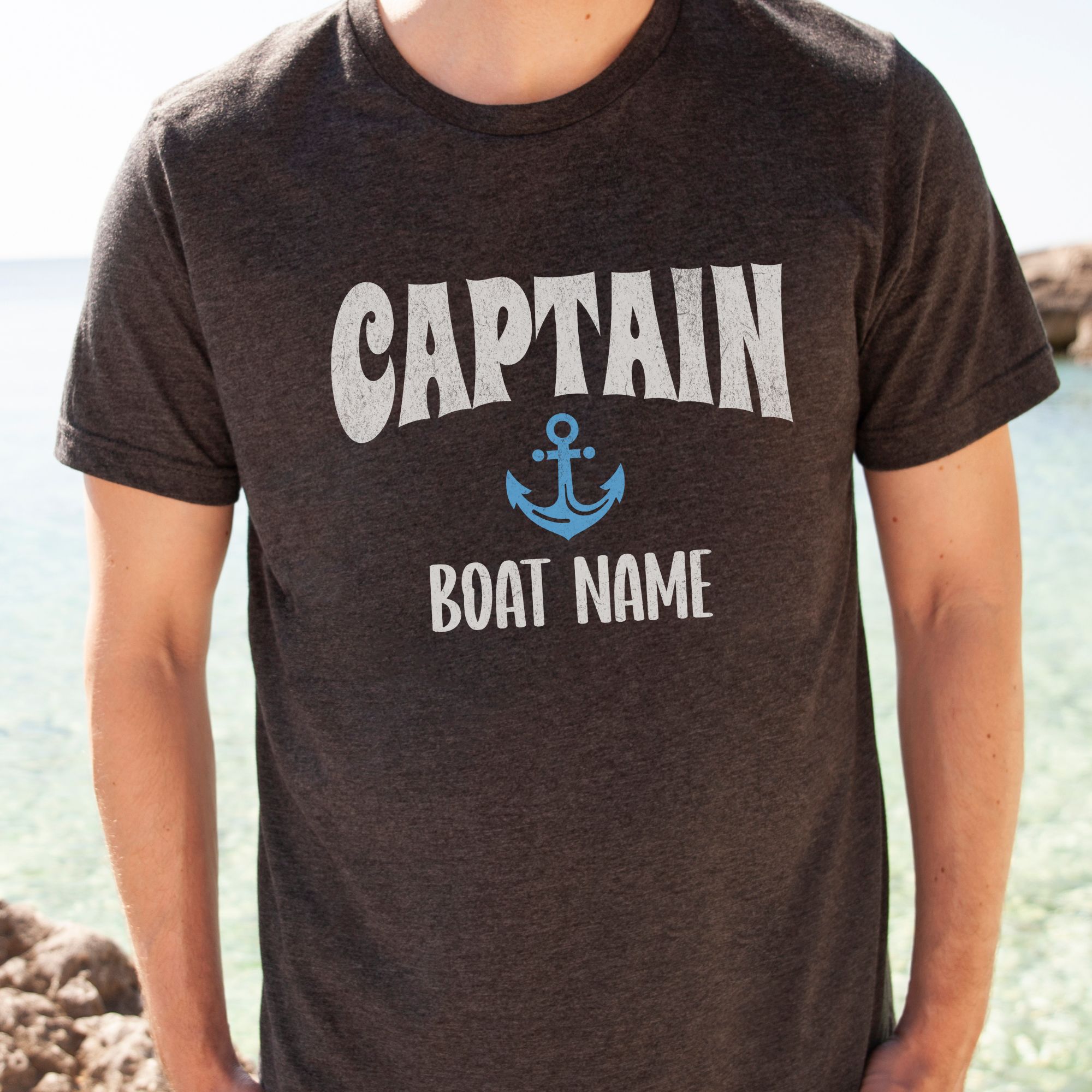
Captain Anchor Custom Boat Name Shirt
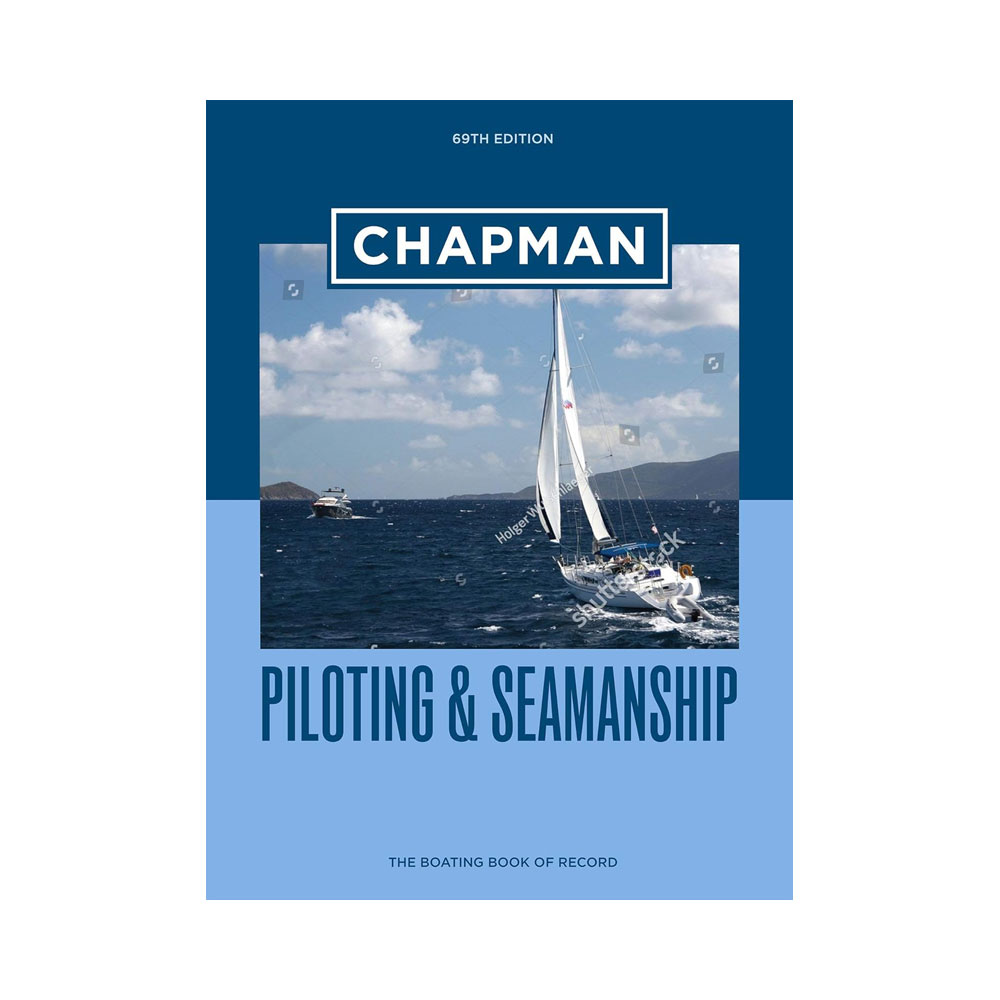
Chapman Piloting & Seamanship 69th Edition
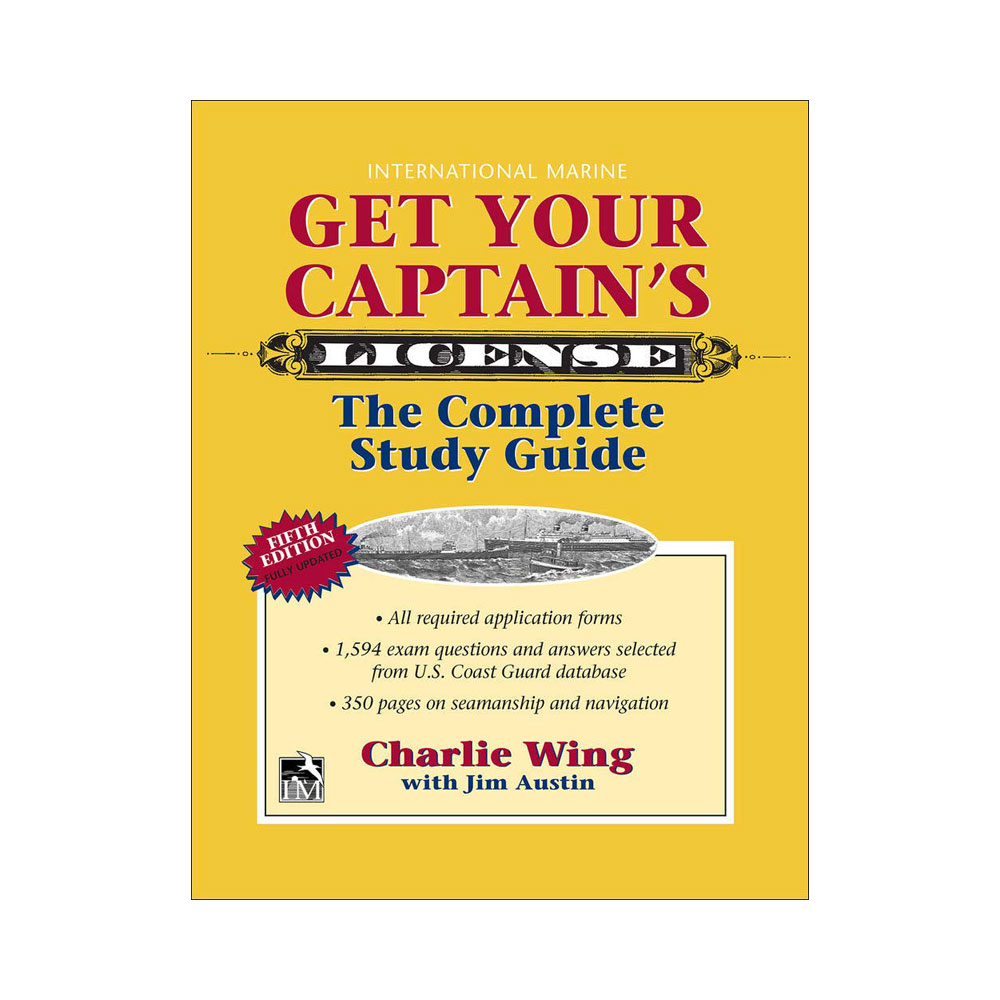
Get Your Captain’s License Study Guide
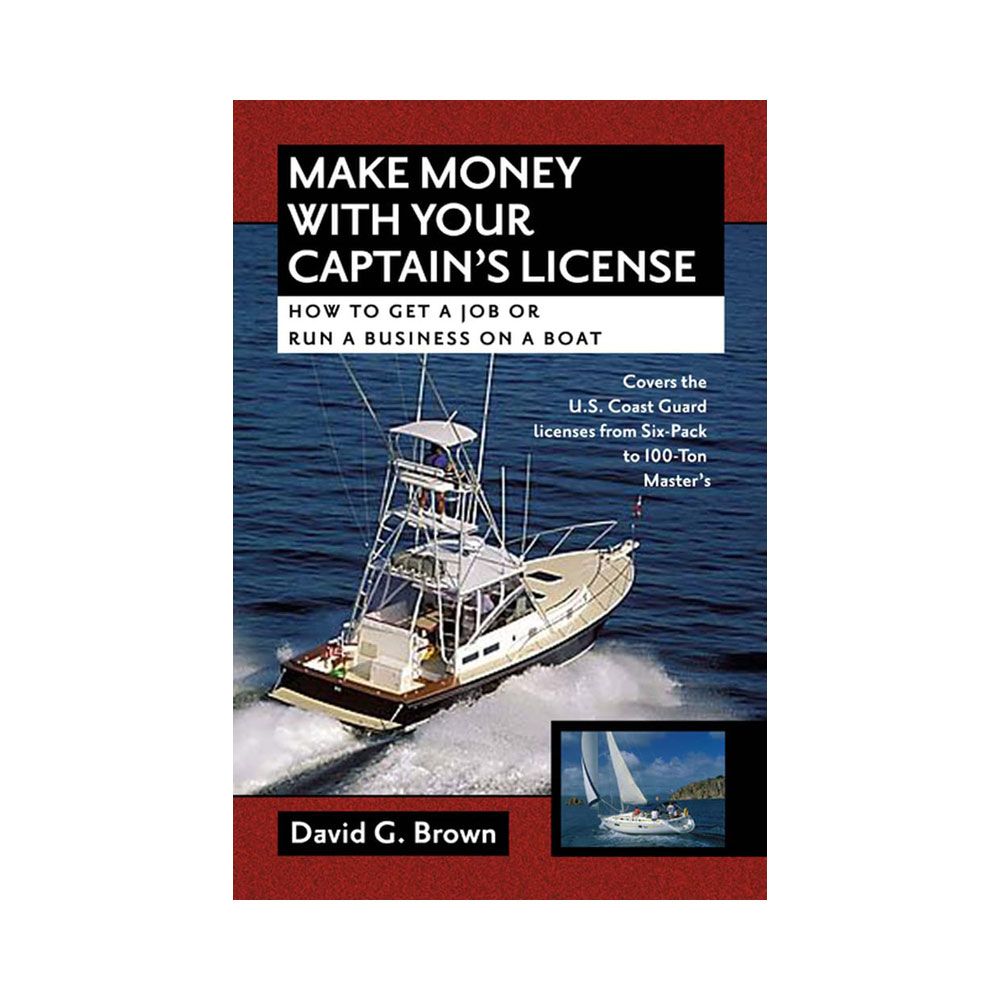
Make Money With Your Captain’s License Book
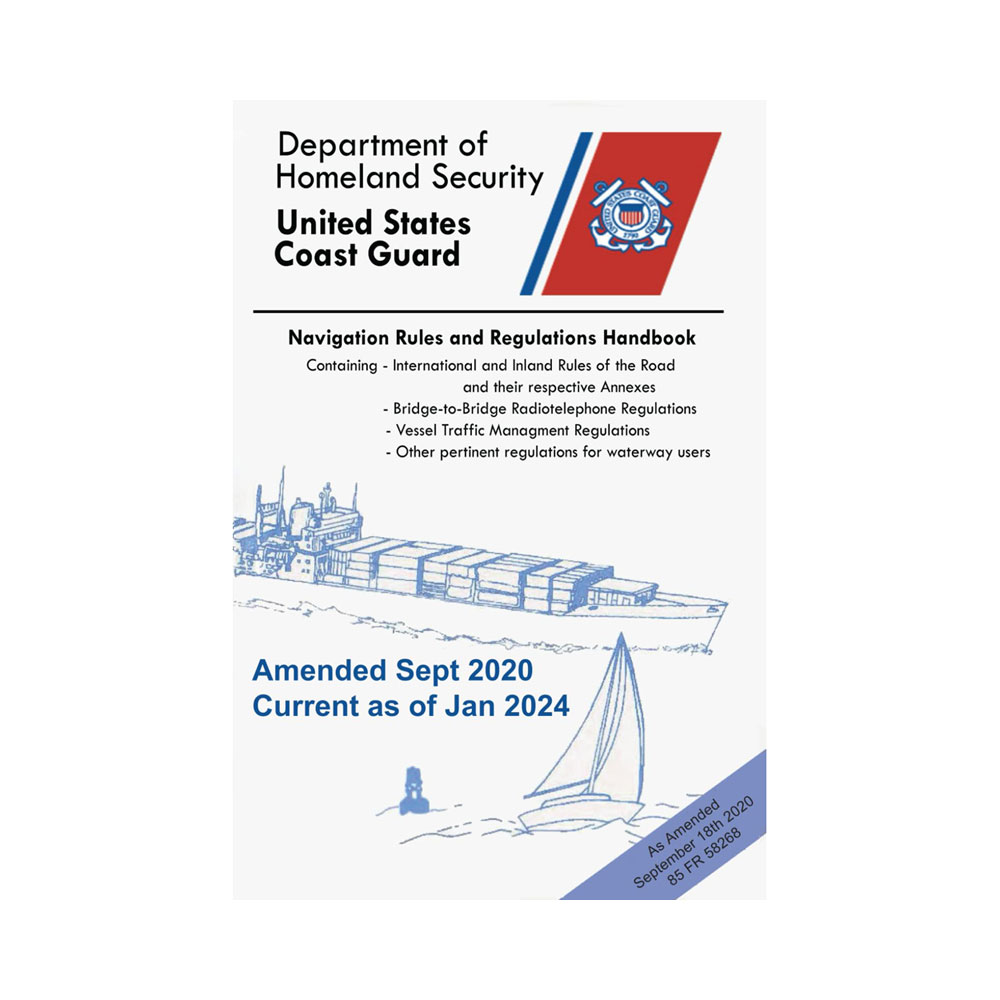
USCG Navigation Rules And Regulations Handbook
Trending now: must-have boat gear for your boat life.

Starlink Standard Kit for Stationary Use: High-Speed, Low Latency Internet
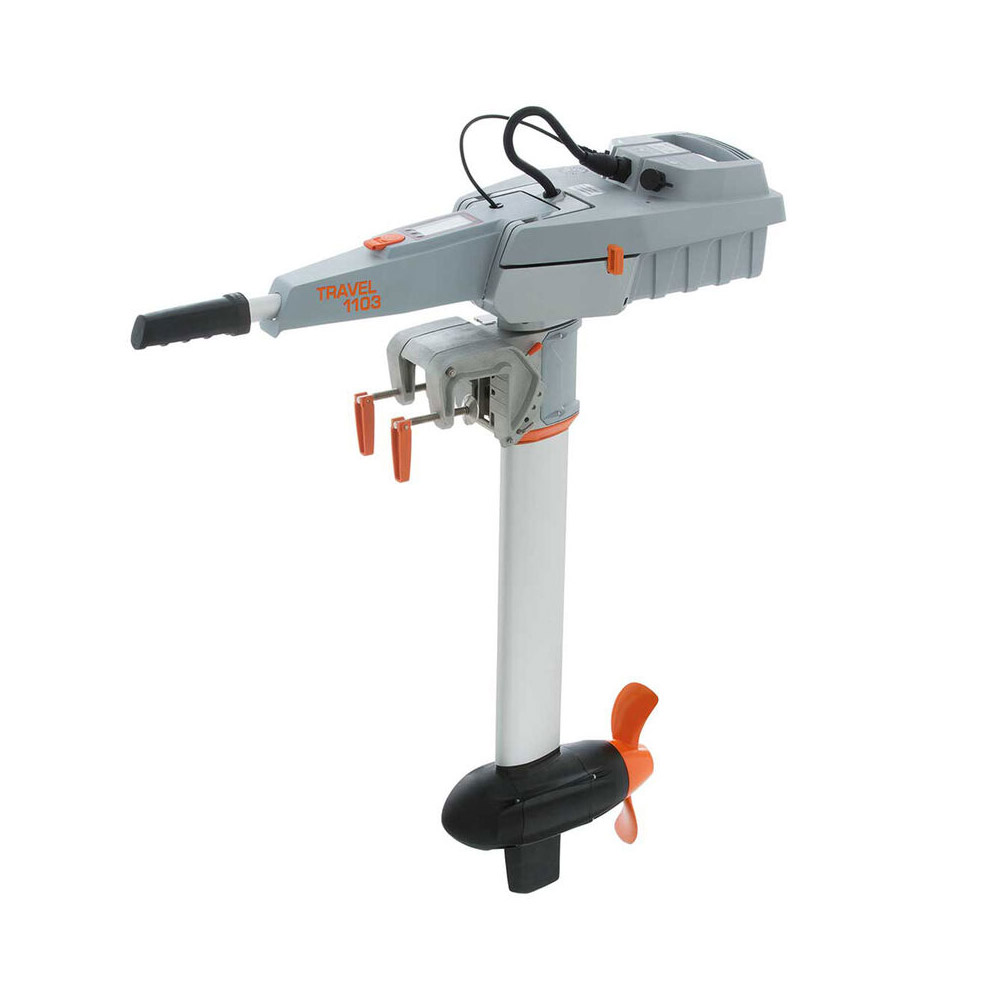
Torqeedo Travel 1103 CS Electric Outboard Short Shaft
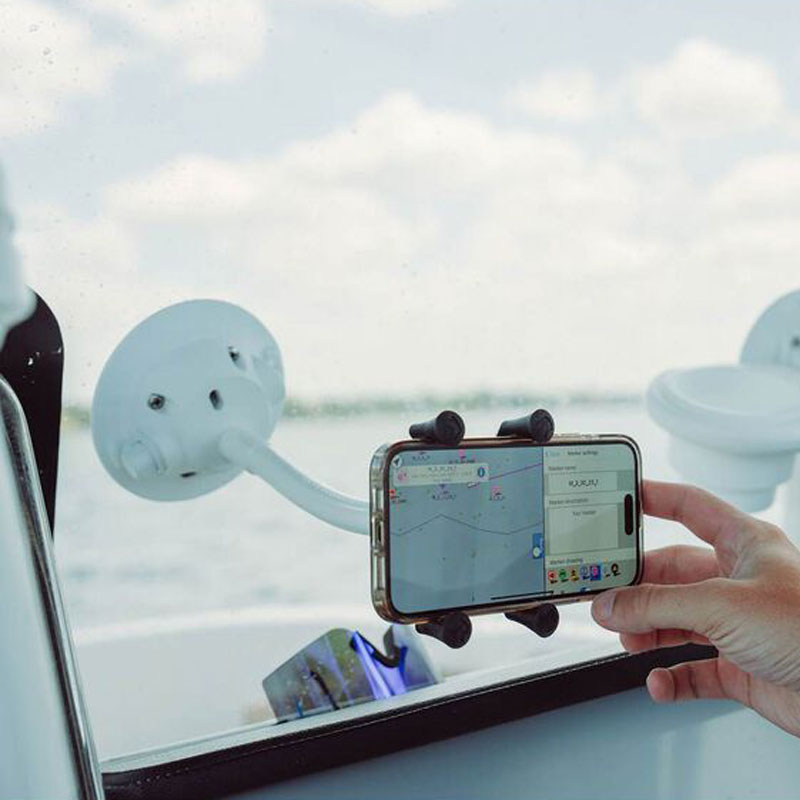
SeaSucker Flex-X Cell Phone Mount
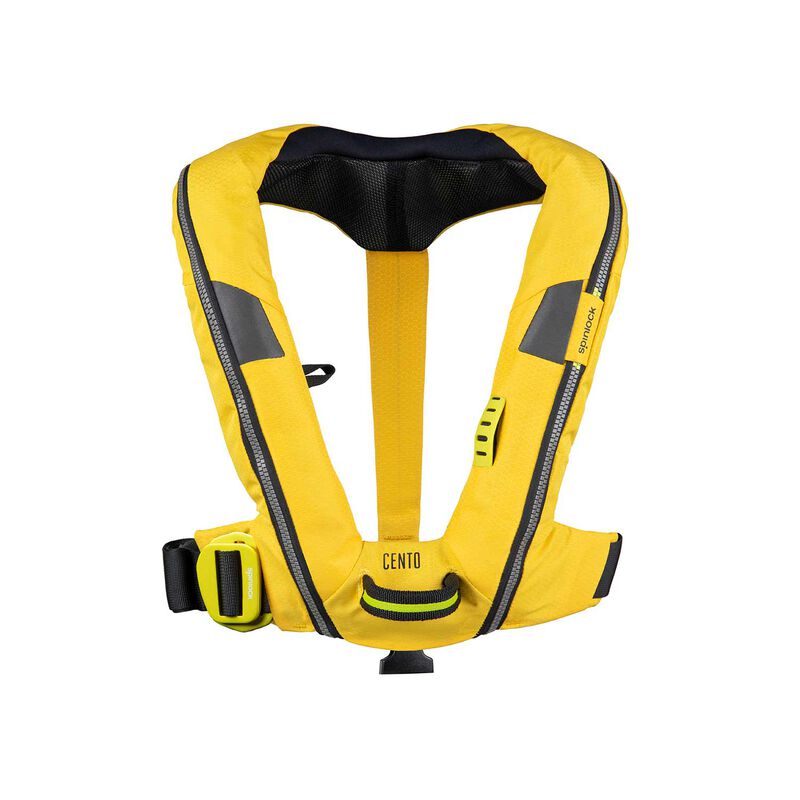
Spinlock Deckvest Junior Inflatable Life Jacket
Trending now: custom nautical decor for your boat life.
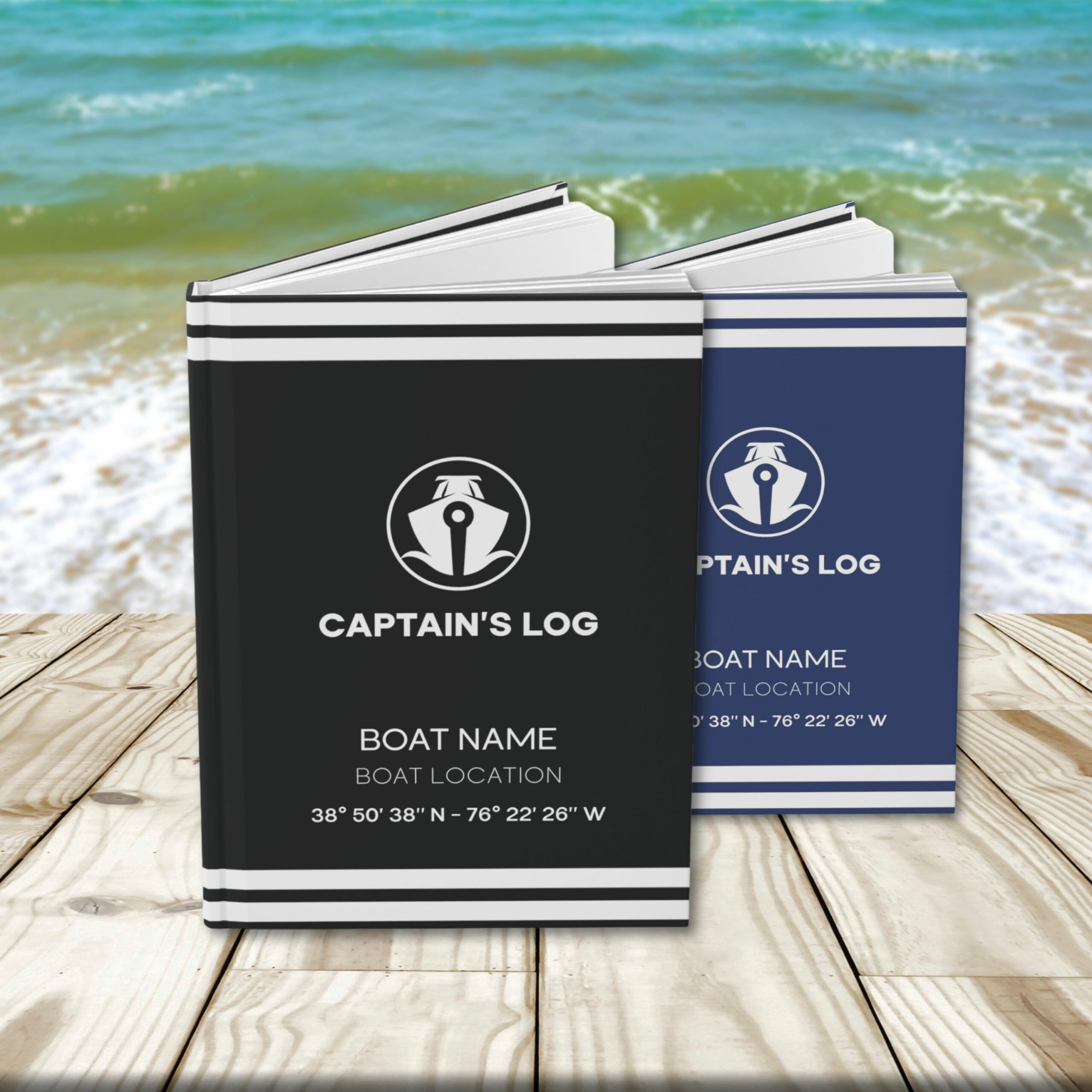
Captain’s Log Book Personalized with Boat Name

Boat Mom Definition Canvas Tote Bag
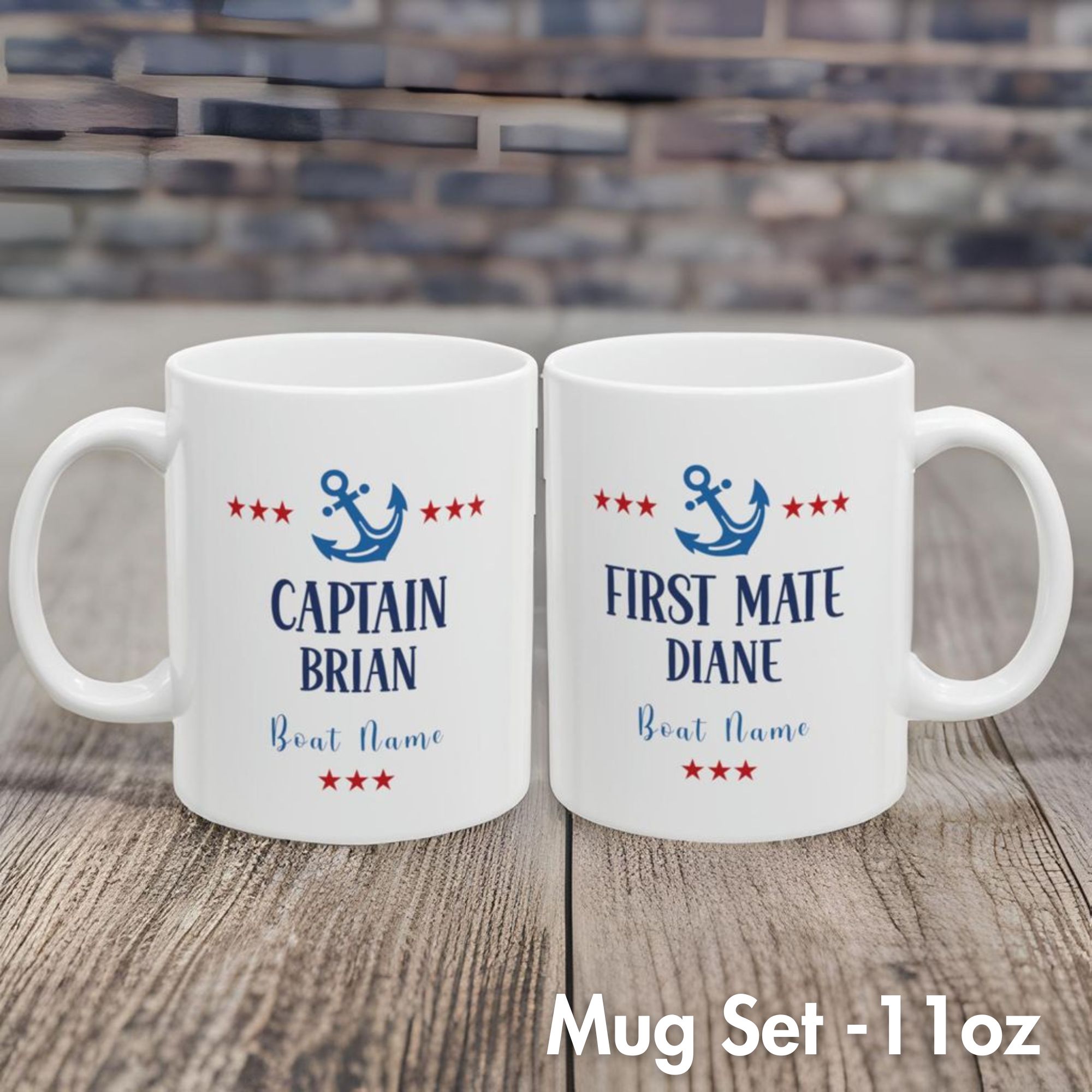
Custom Captain & First Mate Boat Name Mugs
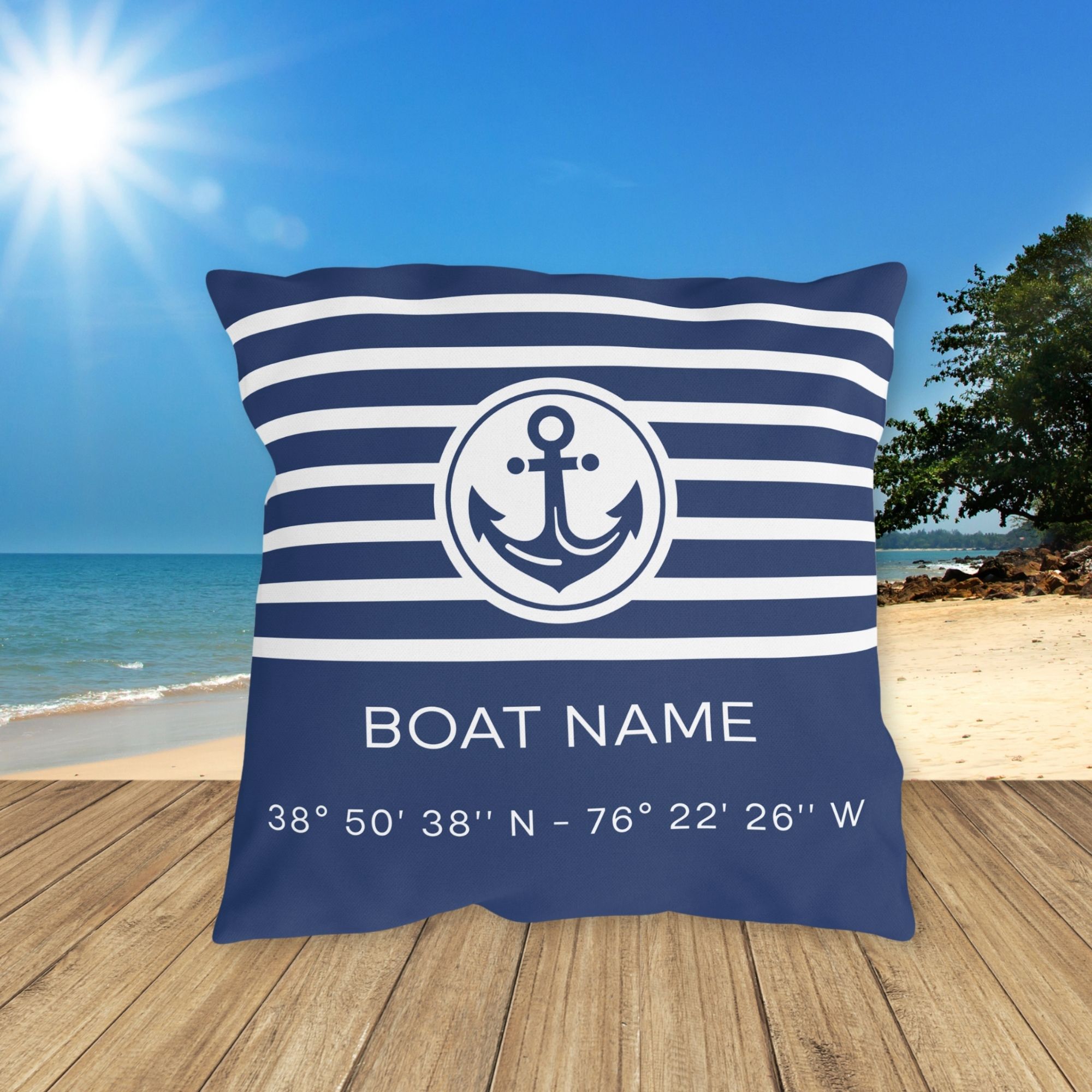
Boat Pillow with Boat Name & LAT LONG Coordinates

Capt. Rob Chichester
Related posts.
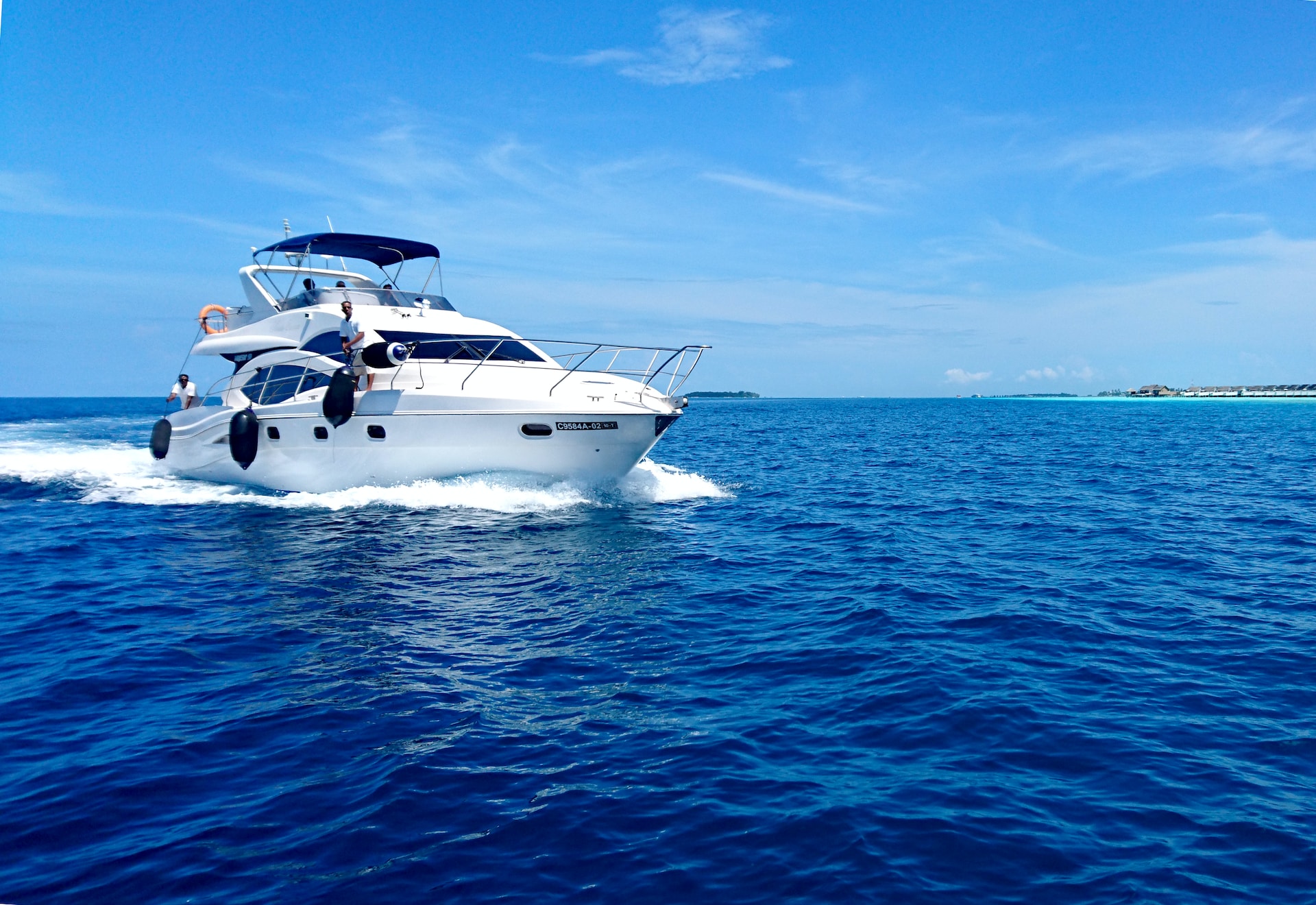
Can I Drive My Yacht Anywhere In The World?
May 11, 2023
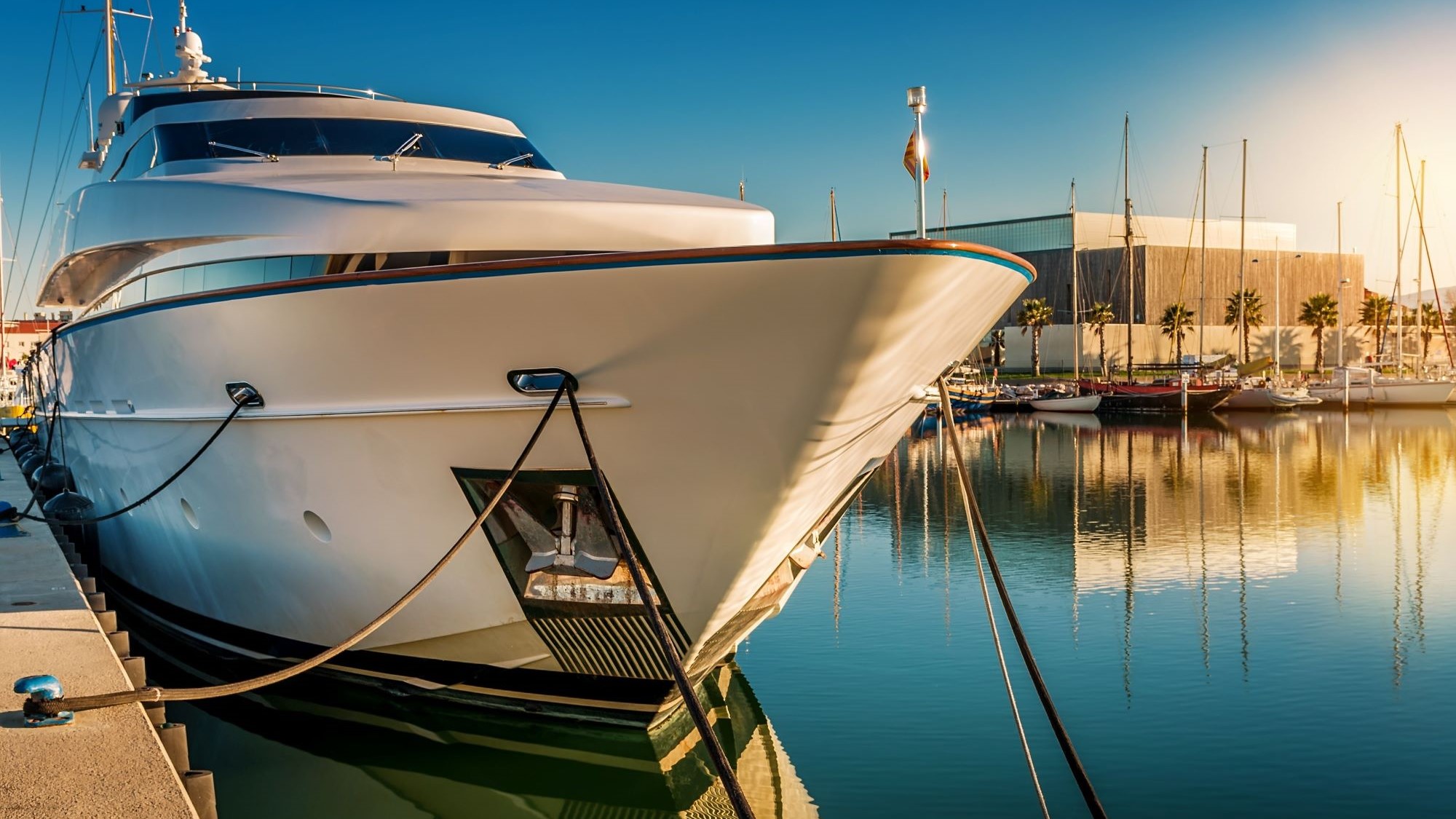
How To Transport A Yacht Safely
April 7, 2023
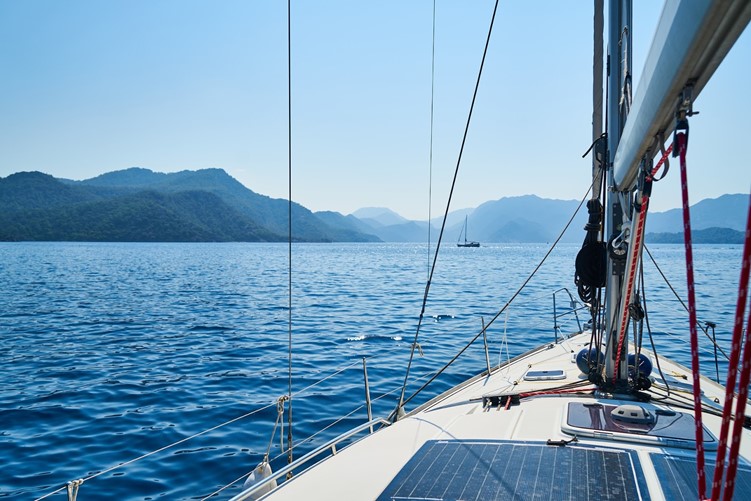
How Hiring a Captain Can Make You a Better Boater
May 29, 2021
24 Comments
Hi, I am hoping you can help me out. I am a USCG vet that was stationed at a small boat station in NJ from 1983-1989. I am trying to get my sea time documented but I am having a very hard time finding out how to do that since the station records were not computerized at that time. I have contacted the NMC and they told me to call the station to get an Abstract of Operations report. They just laughed at me when I called the station. I have requested info from vetrecs.archives.gov but I am sure that will take some time just to get an answer as to wether they can do that or not. I was wondering if you knew how to go about getting the information that I need. I am sure I am not the only person with this issue and I can’t seem to find anyone that knows exactly how to go about documenting that time.
Thanks Jeff

Thanks for your question. I don’t have a lot of advice for you regarding USCG internal procedures. Perhaps you can contact the Office of Personnel and try to get a copy of your service record. Alternatively, is there anyone at that small boat station who knew you? Would the OIC be willing to write a letter? The last and least likely option would be to fill out your own sea service form and see if anyone there would sign off on it for you. Now the regulations speak of a Certificate of Discharge being acceptable. See for example 46 CFR 10.232 ( https://www.law.cornell.edu/cfr/text/46/10.232 ). If you already have that, you might be good to go!
So…start with your Certificate of Discharge and if you don’t have that, then contact the Office of Personnel to see if you can get the requisite documents. Let me know how you make out!
Hi Captain Rob, My name is Elton the 66 year old owner of a small 35 ft. Kingscraft houseboat. I spend a lot of time on one large lake. It is an older wonderful all aluminum vessel but weighs only about 8000 lbs. In the chart the lowest weight rating is 17 tons. I would love to educate myself and become a Captain. Is that possible at some level? I would also have to document my own time as pilot.
Sir, you have open to you both options that I describe in my article. You could pursue either a Master’s license OR an Operator of an Uninspected Vessels license. From what you have written, I see no inherent obstacles. You must be able to document your seatime, get a medical evaluation, and pass the 4 or the 3 parts of the written exam depending on which license you choose to pursue. In any event, you would qualify for an Inland license. Your tonnage rating would also depend on which license you pursue. Solely based on what you have said above, you would qualify for a 50 ton Master’s license. If you pursue an OUPV, that comes with a tonnage rating of 100 tons. For most people, the biggest challenge is acceptably documenting seatime. (It needs all be as captain. You can include time served as master, mate, or crew but NOT as a paying passenger.) If your concern is your age, I know a few captain’s in the 60s and 70s. I am one of the former myself. Good luck!
Capt.Rob I am US Army Veteran And I was wondering if their was a school i could attend to obtain a licence, I ask this because i have to decide what i want to go to school for and this job would be a top pick for me. Any help on this matter would be greatly appreciated thanks
There are MANY captain schools that can help you with the written tests but there are NO schools that can help you with the sea time requirements unless you are considering enrolling in a maritime college like Kings Point or Fort Schuyler in the New York State university system. I used Mariners Learning System for my written tests only because it was more convenient than going to the USCG REC to take the exams.
Where would I get sea service forms . I have owned and operated my own boats for over 30 years and am now being asked to get a captains liscence
There is a link in the article for the National Maritime Center. All the forms you needs can be found on their website. Alternatively, you can search for USCG National Maritime Center with your favorite search engine.
Couple questions. Would working as a divemaster on a dive boat in the Gulf of Mexico count for near coastal sea time? And if you were to have 8 hours of sea time in one day, could you potentially count that as two days at sea? Or would it still be just one day? Thanks for all the info this has been a huge help!
Any time spent aboard a vessel underway counts as long as the owner, manager, or master of the vessel will attest to that. When submitting Sea Service forms, your option for your role aboard the vessel are things like crew, mate, master, engineer, etc. You will need to determine what your position was. Divemaster is not recognized and does not speak to maritime skills necessarily. (For example, you can dive from shore never having been in a boat.) Regarding the near coastal time, you just need to verify that the vessel upon which you served was indeed in near-coastal or ocean waters. The form has spaces for days spent within the specified boundaries and outside those boundaries. I once saw an interactive chart online for finding the boundary lines in a given area. For your purposes, you cannot count 8 hours as two days underway. You need a MINIMUM of 4 hours underway to count that day. Being at anchor or otherwise moored or secured does not count. Good luck!
Capt. Lots of good and helpful info. I boated the Chesapeake for 10+yrs, from the Delaware bay to Virginia in a 27′ cruiser. i’ve not been on the water since 2012. So to be clear, I need to acquire some time on a charter vessel to even attempt the basic “6-pack”. I have my CG boating skills and seamanship certificates,and will work on the CG719S. Living in Florida, lots of opportunity, should have done this sooner !! Thanks
Thank you for your feedback. I am glad you found the article helpful. Apart from documenting your sea time, I found the most labor intensive aspect was verifying that a) I had all the documents that I needed and b) I had correctly completely all of the USCG forms. A lesser challenge may be in determining what correct application fees are. If you are not sure, contact USCG NMC by phone, email, or online chat to get clarification on what fees you have to pay. Good luck!
This is great info..
I am starting out (hopefully) as a plan is due to new lifestyle i desire to get an two oceans open ocean 800 expedition catamaran (again very expensive so fingers crossed) but the plan is while the vessel is being built, i can take several classes and get a few certifications prior to launch, then as life you see everywhere on youtube for example have the vessel at dock, then day trips, then a week trip and just push it a little further until you are ready for the maiden voyage, really looking to live off anchorage in around the philippines / guam area mostly philippines or south pacific area, mostly friends and family but my question is any licence for that type of boat, and also if you have heard of any schools in the philippines? I know they have a few courses that are completely certified like any american school but a fraction of the cost, just curious if any particular licence i need to get or have?
You did not say whether you intended to take passengers for hire. Generally, one only needs to be licensed if you are getting paid to carry passengers OR if you working in more advanced maritime fields like tug boats and large cargo vessels. If you are only operating your private vessel for your own personal or recreational purposes, you usually do not need any kind of license other than possibly taking a multiple choice test on local safety rules and rules of the road. I am not familiar with the licensing requirements in foreign venues like the Philippines. Each nation has its own requirements. I was able to find information at this link: http://www.marina.gov.ph/policies/MCs/mc170.pdf . You may find some useful information in that document.
Good luck! And safe sailing…
Your information was helpful, thank you. I have decided to pursue getting my License but I am starting from scratch. Should I take classes before looking to get sea time? And how does one go about getting sea time with no experience?
Any course work you take will typically culminate in a certificate of completion. However that certificate will only be valid for 1 year. Therefore, do NOT take any exams more than about 6 months prior to submitting your original license application. As for sea time, you can look for marine work that does not require a license like deck crew on water taxis or excursion boats. Time spent on a friend’s boat counts. Have that friend complete and sign a sea service form. Sea time never expires and can be counted from the age of 15. Learn your rules of the road and learn to feel your vessel. Driving a boat is a lot different from driving a car. As a licensed captain, you are expected to step up to the helm and handle the ship with relatively little training time. Good luck!
Great article, thanks for writing it! Does time spent aboard a recreational boat that I own, when I am the only person aboard, count towards sea time? If so how do I document that – there’s no one to sign for the time. Thanks again.
Time spent on your own boat absolutely counts. You would sign the CG-719S Sea Service form yourself where it says Applicant AND where it says Person Attesting to Experience. However, you will have to provide proof of ownership for the vessel. The Bill of Sale is usually what is used but the vessel’s CG document or state registration card should also be sufficient. Remember that seatime is counted only from the age of 15 and it is underway time of at least 4 hours per day. Time on the anchor or alongside do NOT count. The presence of others is irrelevant.
Hi Shane. Sea time is defined as time working aboard in any capacity relevant to the rating you are pursuing. For instance, if you are a bos’n or deck crew, that time it unlikely to count towards a engineer’s license and conversely, time in the engine department or work on mechanical systems would be difficult to apply towards a deck officer’s license. The highest rating one can get on an original (i.e., first) license is 100 Ton Master. It is likely that your Navy time would count; however, your challenge is getting an appropriate service letter from the Navy. You cannot submit a CG-719S for your Navy service as that form is for SMALL VESSEL service. Consult the USCG site at http://www.uscg.mil/nmc for more information. Also note that you may use any valid sea time accrued from the age of 15. Good luck!
Hi Capt. Rob, I have one question rather just some clarification regarding the time at sea, for the tonnage rating. Does “time at sea” mean just that or does it mean operating the vessel. I was in the Navy for several years as an operations specialist and I am not sure what level I would qualify for if I were to pursue getting a Captains license. Also I was wondering how much the entire process would cost.
Hey Rob, Thanks so much for taking the time to write this, it was really very useful to read. This has been on my mind for some considerable time, but I am now finally starting on the road to getting my licence and taking a nautical shift in my career. I have been a sailor all my life, was sailing single handed as soon as I could walk and now own a 38 foot Irwin racer/crusier.
My one big question is online study vs going somewhere to do the required course? I wonder how you gained your licence and what you might recommend?
My issue was primarily NOT wanting to have to take the tests at the NYC REC and to NOT attend intense 8-10 hour weekend classes. I was comfortable with the Rules of the Road and chart navigation issues as well the Deck General material. Since I got a Master’s license (versus the OUPV), there was more legal stuff to know in the category they call Ship’s Business. I did an online course through Mariner’s School in Princeton, NJ. The price was good and the location was convenient for when I did go to take the test.
The bottom line is do what works best for you given what you need to learn or refresh, how much time you have to do it, and where you will need to go to take the final tests.
(Please note that you can submit your application and/or take your tests at ANY REC anywhere. It is not a function of where you live or where you will sail.)
Great article Rob. Thanks for sharing your experience
Thank you for the feedback. Do please let me know if you have any further questions or if I may be of service in some other regard!
Comments are closed.
HUGE SUMMER SAVINGS!! Save on Boat Gear with West Marine's Black Friday in July Sale their biggest sale of the year on 1,000's of items valid June 26 - July 8

Why Obtaining Your Captain‘s License Is Essential
How to get your captain's license and pilot your own yacht.
If your boat is longer than 9 metres, without a skipper’s or captain’s license, you cannot legally take it out to sea.
That kind of defeats the purpose of owning a boat, right?
Earning a captain’s license and being able to confidently pilot your own yacht will be your passport to traversing our planet’s beautiful oceans. You will have the freedom to explore the seas to your heart’s content without a care in the world.
Getting the right certification for your requirements, be it a Day Skipper , Coastal Skipper , Local Waters Skipper or Yachtmaster Offshore Certificate of Competence , will allow you and your sailing companions to get the most out of your yacht and enjoy it to the maximum.

Become a yacht captain by acquiring your captain's license
If you already have significant sailing experience, you may want to go the self-study route and simply take your exams at an accredited sailing school.
If you are new to the world of sailing, you’ll want to choose a reputable sailing school. They should provide you with the necessary practical and theoretical training to confidently captain your yacht.
Here are the various Certificates of Competency (COCs) or 'Captains Licenses'
- Inland Waters Skipper
If you hold this license, you will be qualified to skipper a sailboat inland during day and night.
- Day Skipper
This skipper’s license will qualify you to captain a sailboat at sea in local waters from sunrise to sunset. Local waters are defined as 15 nautical miles, or 25 miles, from your home port, given that they are no more than 15 nautical miles from an approved safe haven.
- Local Waters Skipper
Holding this license, you will be qualified to skipper a sailboat at sea by day or by night in local waters, as defined for the Day Skipper’s license set out above.
- Coastal Skipper
A Coastal Skipper‘s license will qualify you to skipper a sailboat on any coastal passage, as long as it is within 40 nautical miles of the coast, day or night.
- Yachtmaster Offshore
A Yachtmaster Offshore skipper’s license will qualify you to captain a sailboat on any extended or ocean passage.
- Yachtmaster Ocean
A Yachtmaster Ocean certificate is a badge of honour, indicating that you have mastered celestial navigation.

To sail around the world, you will need a captains license!
You will need your international accreditation through the Royal Yacht Association or International Yacht Training if you wish to skipper a yacht or superyacht as a career.
International Certificate of Competence
If you plan to sail your yacht around the world, you’ll have to obtain an International Certificate of Competence (ICC) . The ICC has been likened to an international driver’s license for boats.
If you have your sights set on the waters of Europe and the Mediterranean, you will need an ICC to do so legally. However, it is essential to note that the US and Canada have different international captain license requirements and do not recognise the International Certificate of Competence.
You will have to contact a Royal Yachting Association affiliate to obtain an ICC in North America.
COCs - start your captain's license from the beginning
The various Certificates of Competence are progressive, so it makes sense to start with your Day Skipper’s license , and progress to your Yacht master Offshore captain’s license from thereon.
An important consideration to keep in mind is that the Certificate of Competence you select will very much depend on your individual needs and circumstances.
For example, the requirements for a Recreational Sailing Certificate of Competence differ from a Commercial Sailing Certificate of Competence . So, your motivation (recreational, commercial or professional international sailing) will determine which skipper training course you select.
There are also some necessary prerequisites that have to be met before any sailor can apply for skipper’s license training. They are:
- All candidates must be at least 16 years of age
- For ocean sailing, candidates need a radio operator’s certificate valid for operating a marine VHF radio in South Africa
- All candidates will have to pass a basic eye test. If you are colour blind, you will not be able to proceed past the Day Skipper Certificate of Competence
- Candidates for the Coastal Skipper Certificate of Competence and above must have a current and valid Level 1 First Aid Certificate
- All candidates will have to produce a logbook of experience to get their qualification. The required expertise to be logged varies depending on the certification course.
Here you will find lots of information on the various sailing Certificates of Competence (or skipper tickets, as they are also known) available to you.
Just keep in mind that such certificates (and what they will legally qualify you for) vary from country to country.
If you are a non-SA citizen, you will have to research your country’s legal requirements for the various sailing Certificates of Competence.
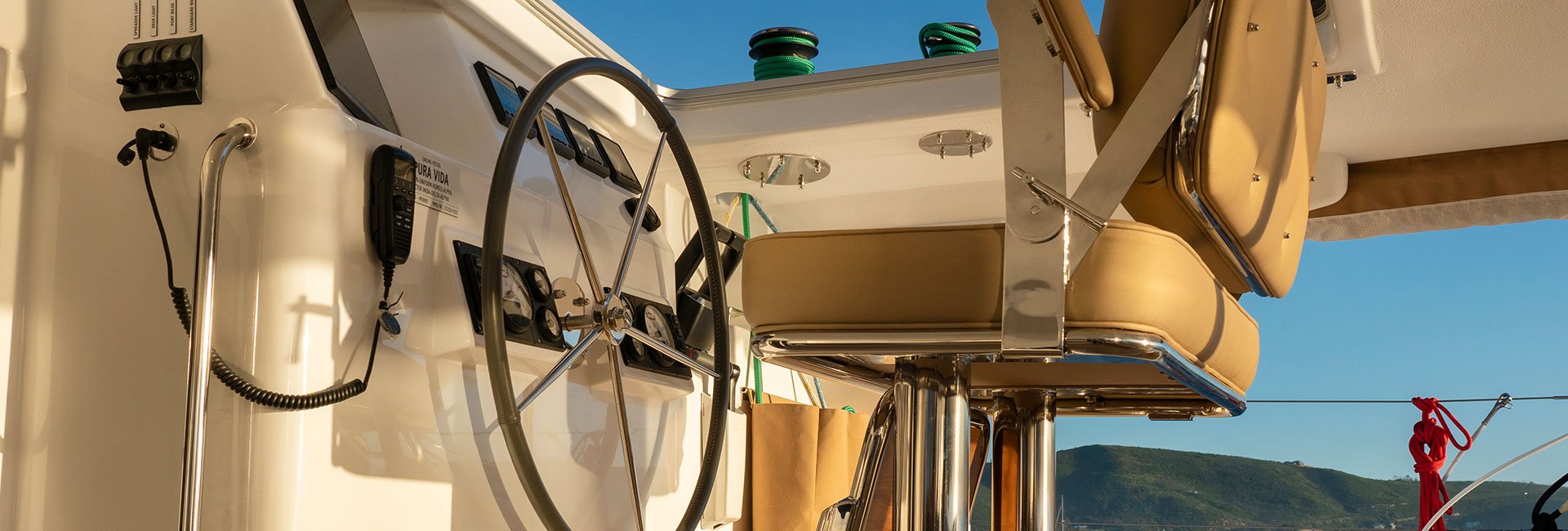
How long does it take to become a yacht captain?
This will depend on the skipper’s course you decide on. To obtain certification in basic sailing skills is quite affordable and could take as little as three weekends to complete.
Courses like the Yachtmaster Ocean Certificate of Competence are much more comprehensive, intensive and costly. This course takes about 17 weeks to complete.
Why getting your skipper’s or captain’s license will be worth every cent
Unless you have a sailing crew (including a qualified skipper) at the ready, it will be absolutely worth your while to obtain the necessary credentials to skipper your yacht yourself.
South Africa has many reputable, accredited sailing schools. They can provide you with all the information and training you need to obtain the captain’s or skipper’s license that is right for your requirements.
Undergoing the necessary practical and theoretical training will give you all the knowledge and experience to sail your boat with confidence.
What’s more, your skipper’s license training is likely to be an exhilarating adventure in itself.
It is also an excellent way to meet other sailing enthusiasts who might just become friends for life.

Yacht Maintenance - Top Tips for Protecting Your Investment
Essential things to know about boat insurance, top things to know about yacht solar power, building a yacht: top things to know about the yacht-building process, get all the latest to your inbox, discovery awaits.

- Bottom Painting & Prop Speed
- Fiberglass & Paint Work
- Running Gear & Valves
- Full-Service Team
- Monthly Maintenance Programs
- Dockside Service Team
- Full-Service Boatyard
- Management Services
- Accounting & Reporting
- Relevant Management Experience
- News and Media
Do You Need a License to Drive a Yacht?
Owning a yacht embodies luxury, freedom, and adventure on the open waters. However, amid the allure of yacht ownership, there's a critical aspect often overlooked—the necessity of possessing a valid yacht license. This article delves into why having a license to drive a yacht is indispensable for aspiring owners. But do you need a license to drive a yacht? The team at Yacht Management , a leading provider of yacht maintenance services, provides all the information you need to know here.
What to Know About Yacht Ownership

What to Know About Yacht Ownership As a leading yacht maintenance company, we understand that yacht ownership represents the epitome of luxury and an unparalleled sense of freedom in the realm of maritime indulgence. It embodies an aspirational lifestyle coveted by many, symbolizing not just a possession but being amid a world of opulence and unparalleled experiences.
The allure of owning a yacht extends beyond mere ownership. It encapsulates the spirit of adventure and the thrill of exploration on the open seas. Picture the sheer liberation of charting your course, unfettered by land-bound constraints, navigating through pristine waters to your chosen destinations. It's a lifestyle that harmonizes luxury with the freedom to explore remote coves, pristine islands, and exotic locales, all within the sanctum of your private vessel.
Yacht ownership is more than a status symbol; it's a gateway to a unique way of life where one can escape the ordinary and immerse oneself in the extraordinary. The sensation of being surrounded by boundless azure horizons, the sun painting the sky in hues of gold during sunset cruises, and the gentle rhythm of waves against the hull—all contribute to an unmatched sense of liberation and tranquility.
Owning a yacht brings unparalleled freedom, allowing one to embrace the spontaneity of travel and the luxury of seafaring without limitations. It's an embodiment of personal expression, where the yacht becomes an extension of one's identity, reflecting individual tastes and desires amidst the vast expanse of the ocean.
Being a yacht owner is not solely about possessing a magnificent vessel; it's an invitation to a lifestyle where luxury, adventure, and the boundless freedom of the seas converge, creating an experience that transcends the ordinary and defines the extraordinary. But do you need a license to drive a yacht and make the lifestyle your everyday experience?
Why Having a License for a Yacht Is So Important
There is more to know beyond answering the question, "Do you need a license to drive a yacht?" Knowing why you want one to be in your possession is important. Below are some of the main points our yacht service experts want you to remember.
Legal Compliance and Regulations of a Florida Boating License
The operation of a yacht demands meticulous adherence to a myriad of legal frameworks and maritime regulations. These encompass licensing requirements, registration obligations, and adherence to safety standards stipulated by international and regional maritime bodies. Understanding and complying with these legal mandates is not merely a formality. It is the cornerstone of responsible yachting. Moreover, a profound comprehension of maritime laws ensures the safety of all onboard, mitigating risks and fostering a secure environment for crew and passengers alike.
Mastery of Navigation at Sea
Navigating a yacht presents unique challenges that demand a comprehensive grasp of navigation techniques. Unlike land-based travel, yachting requires proficiency in understanding nautical charts, interpreting weather patterns, and employing navigation tools specific to maritime environments. Mastering these skills is imperative for ensuring safe passage, efficient handling of the vessel, and the ability to navigate diverse and often unpredictable waterways.
Handling Emergencies at Sea The vastness of the seas brings with it the potential for unforeseen emergencies. From inclement weather conditions to mechanical failures, being equipped to address these difficulties is non-negotiable. A thorough understanding of emergency protocols, swift decision-making in crisis scenarios, and possessing the skill set to manage emergencies effectively are paramount. Whether it involves first aid proficiency, knowledge of distress signals, or executing evacuation procedures, preparedness is vital to ensuring the safety and well-being of everyone aboard. Do you need a license to drive a yacht and handle these emergencies? The experience comes with the practice that only a license will present to you.
Obtaining a license to drive a yacht extends far beyond a legal requirement. It embodies a commitment to safety, proficiency, and responsible seamanship. Mastery of maritime laws, navigation skills, and preparedness in handling emergencies form the bedrock of a conscientious and adept yacht operator, ensuring not just compliance but also the safety and security of all involved in the yachting experience.
The Process of Obtaining a Florida Yacht License "Do you need a license to drive a yacht?" This question often marks the outset of one's journey toward navigating the world's waters aboard one's own vessel. Addressing this query initiates a multifaceted process involving stringent prerequisites and comprehensive training to ensure the mastery of essential skills integral to responsible yacht operation. Our yacht care professionals are masters in all things related to navigation. Here, they present things you must know when you are undergoing the process of obtaining your license.
Florida Boat License Requirement and Training Acquiring a yacht license requires fulfilling specific prerequisites that vary depending on the region and the license type sought. Typically, applicants must meet age requirements, undergo a thorough medical examination to ensure physical fitness and complete a specified number of logged sea hours. A fundamental understanding of maritime laws and navigation principles is also essential through formal education or training courses.
Training programs for yacht licensing encompass a comprehensive curriculum covering seamanship, navigation techniques, safety protocols, and emergency procedures. These programs, often conducted by certified maritime institutions or accredited training centers, offer theoretical instruction complemented by practical, hands-on experience aboard vessels. They equip aspiring yacht operators with the knowledge and skills necessary to navigate, operate, and manage a yacht proficiently and safely.
Variations of the License for Boating in Florida Yacht licenses vary in scope and designation, catering to different yacht sizes, navigational zones, and purposes. Common categories include licenses for recreational yachts, commercial vessels, and specific endorsements for operating in coastal or open waters. Licenses may also differ based on propulsion systems, accommodating both sail and motor yachts. The scope ranges from inland waterways to unrestricted navigation in international waters, reflecting varying degrees of competency and experience required for each category.
Beyond the fundamental yacht license, endorsements or supplementary certifications augment an operator's skill set. These endorsements often focus on specialized areas such as offshore sailing, handling specific types of vessels, or certifications in advanced navigation techniques. Additionally, safety and first aid, radio operation, or environmental stewardship certifications further enhance an operator's capabilities and preparedness, ensuring a comprehensive skill set for navigating diverse yachting scenarios.
Obtaining a yacht license involves meeting prerequisites, undergoing rigorous training, and selecting the appropriate license category tailored to one's yachting ambitions. Furthermore, pursuing endorsements and supplementary certifications enriches an operator's proficiency and preparedness, ensuring a well-rounded skill set for navigating the complexities of yachting.
Get in Touch With a Leader Among Yacht Maintenance Companies
Do you need a license to drive a yacht? Yes! It won't only prove essential in legal and regulatory matters. It will also provide the necessary experience and practice to captain a vessel confidently.
But if you're seeking a partner to care for your watercraft, don't settle for just any South Florida yacht maintenance company. Team up with the experts at Yacht Management for unmatched care. If you're interested in learning more, feel free to reach out to our team today or call our team directly to speak with a representative today.
Be sure to also take a look at our yachting blog for a deep dive into several topics our professionals regularly cover. Take your yachting experience to the next level with the help of seasoned experts who call the ocean home and their clients a commitment to excellence that will be met.
Related Readings:
- A Beginner’s Guide to Boat Navigation
- The Art of Luxury Yacht Provisioning
- Reasons to Hire a Boat Captain

For all inquiries, fill out the form below and a member of our team will respond as soon as possible
When Do You Need a USCG Captain's License?
Need a USCG Captain's License? It's a must for commercial ops and varies by state for private boating. Know the requirements.
If you own a boat or yacht, you might be wondering if or when you need a captain’s license. And if you do, which license do you need? The last thing you want is to be stopped by the Coast Guard and be unprepared.
This article will answer all of your boating license requirement questions.

Private boat captain license requirements
One of the most common questions boat owners ask is whether they need a license or not to captain their boat. The simplest answer is if you’re taking any paying passengers on your boat, you need a captain’s license.
There are other state requirements that you must comply with. For example, California requires everyone to carry a California Boater Card while driving a vessel powered by a motor of 15 hp or more. You obtain a Boater Card by taking a short boating safety course. Many other states have similar laws that require you to complete a course, and carry proof.
These requirements vary by state, so make sure to check your state requirements.
Note that a state boating card is different from a Coast Guard Captain’s license. A boat safety course qualifies you to operate your personal boat, and have your friends and family on board.
A USCG license is needed when you’re operating a vessel in a commercial manner. When people are paying you, you need a license to operate.
The two common USCG licenses are the Master’s License and the OUPV license.
OUPV / Six-Pack License
The OUPV (Operator of an Uninspected Passenger Vessel) license is one of the most common licenses. As the name suggests, this license allows you to operate an Uninspected Vessel .
An Uninspected Vessel is limited to six paying passengers, which is why the OUPV license is also often called the Six Pack license .
People choose to get their OUPV license even if they never plan on taking paying passengers on their boat. Getting your license will teach you more about navigation and maritime safety compared to the basic boating safety course that most states require.
This license allows you to do small fishing trips, sightseeing tours, dive trips, and other commercial activities in the eyes of the USCG. There are may be other state requirements that you must comply with along with your Six Pack license such as a commercial charter fishing permit.
These requirements vary by state, so make sure to check your state requirements. The OUPV license is also limited to vessels that are 100 gross registered tons and under (about 80 feet long). Any OUPV license can be used for a 100 GRT vessel, but there are 3 different license types that qualify you for bodies of water: Inland, Great Lakes, and Near Coastal.
If you want to have more than 6 paying passengers, or captain a larger vessel, you’ll need to get your USCG Master’s License.
Master’s License
The Master’s License is required if you’re taking 7 or more paying passengers, and for USCG-inspected vessels. This license also qualifies you to captain uninspected vessels. To qualify for your Master’s License, you’ll need to complete the application form for Merchant Mariner Credentials (CG-719B form). And you will need a minimum of 360 days of documented sea service.
There are different Master Licenses that qualify you to captain different size vessels and on different waters. For example, a 50-Ton Master Near Coastal license qualifies you to captain a vessel up to 50 GRT in Near Coastal and Inland waters. You can always apply for a new endorsement or increase in scope, such as 50-Ton Inland to 50-Ton Near Coastal.
General License Requirements and Process
As mentioned above, you don’t need a USCG license for your personal boat or yacht, unless you want to use it for commercial purposes.
Here are the requirements and steps you need to take to get your USCG license.
Requirements
OUPV / Six Pack
- Ability to speak and understand English.
- U.S. Citizenship, or permanent residency.
- At least 18 years old.
- Valid Medical Certificate.
- Pass USCG-Approved Drug Test.
- Paid Mariner Fees.
- 360+ Days of Sea Service, 90+ Days within 3 years.
- Complete CG exam or approved course.
- USCG Approved CPR / FA within 1 year.
- At least 19 years old.
Licensing Process
1. decide which license you want..
You can upgrade your license from an OUPV to Master’s, or from a 25-Ton Master to 100-Ton Master, but it’s better to decide which license you want, and obtain that one first.
Read : Which USCG Captain's License Should You Choose?
2. Obtain a Transportation Worker Identification Card
A valid TWIC is required for all mariners getting their first United States Coast Guard-issued credentials.
3. Document Sea Days
USCG licenses require 360 sea days and 90 of those days within the past 3 years. You’ll complete a CG 719S form and attach it to your application. The vessel and waters you were on during that time will determine the endorsement you receive.
You will be required to complete a general physical exam. Any physician, physician assistant, or nurse practitioner who is licensed in the U.S. or U.S. Territory can sign off on your medical exam on the CG-719K form.
5. Drug Test
You will need to have negative drug test results within 185 days of your application. The test must be a DOT | USCG 5 Panel testing for Marijuana, Cocaine, Opiates, Phencyclidine, and Amphetamines. The USCG won’t accept any other drug test.
6. First Aid/CPR
You will need to complete an in-person First Aid and CPR course within the past 12 months. We recommend finding an American Red Cross First Aid and CPR course near you.
7. Pay.gov Fees
The last step in this process before submitting your application is to pay the Mariner fees. The costs vary depending on the endorsement type and course fees. When you submit your application using MM-SEAS Perfect Application, the Pay.gov fees are included.
8. Submit Your Application
To get your MMC, you’ll need to complete and submit the CG-719B form. To get your MMC with the proper endorsements, you’ll need to provide proof of your sea service, that you have a TWIC or applied for one, and that you’ve paid your required fees.

We hope this made your life a little easier and if you have other questions the MM-SEAS team is always here to help!
MM-SEAS is free to use on your own and if you need some more personalized help you can upgrade to MM-SEAS Pro inside of the site.
No matter what, when you are ready to submit your application, you can choose to have the MM-SEAS staff create a perfect application, handle the USCG application fees and work with the USCG on your behalf to resolve any issues for a flat fee of $349 or you can choose to submit on your own.
Pro MM-SEAS members get access to unlimited live 1 on 1 calls with one of our USCG Licensing Specialists. We've found that answering questions live with screen sharing in a video call makes both of our lives easier. Pro MM-SEAS members can access these features inside of MM-SEAS under License Guidance.
Need to renew, upgrade or get your first USCG license? We're here to help.
About the author.

Sam Mckay is a NOAA Corps Veteran working on his PhD in Nuclear Fusion

Buy One, Get One 50% Off! Use code MLSBOGO50
- Get Started
- OUPV/Six-Pack Captain’s License
- 25/50 or 100-Ton Master Captain’s License
- License Endorsements
- All USCG Captain's License Courses
- FCC MROP – Marine Radio Operator Permit
- FCC Exam Package Deals
- FCC Individual Exams
- FCC Practice Test Books
- Captain's License Guides
- FCC License Guides
- Why Our Students Succeed
- MLS Learning Tools
- Online Testing
- American Hero Fund (ID.me)
- Licensing Guides
- How To Videos
- Help Center
- 24/7 Live Technical Support
- Mariners Life
- Mariners Gear
Add description, images, menus and links to your mega menu
A column with no settings can be used as a spacer
Link to your collections, sales and even external links
Add up to five columns
Which USCG Captain’s License Should You Choose?
February 18, 2024
Captain's License: Which License Should I Go For?
↓ watch the video ↓.
Common Questions About Choosing the Right Type of Captain's License
1 which uscg captain's license should you get.
The staff at Mariners Learning System recommends that you seek the highest level license you can qualify for . There are a couple of options depending on your citizenship status and boating experience.
To learn more, see our One Minute Guide: Which Captain's License is Best For You?
2 WHAT ARE THE TYPES OF CAPTAIN'S LICENSES?
The two main types of captain’s licenses issued by the Coast Guard are the Operator of Uninspected Passenger Vessels , also known as the Six-Pack or charter boat captain’s license, and the 25, 50, or 100-Ton Master License.
The Six-Pack Captain’s License allows the holder to carry up to six paying passengers plus crew on uninspected vessels up to 100 gross tons, hence the term six-pack. These are usually recreational vessels that are normally engaged in charter fishing, scuba diving, or tour cruises.
The 25, 50, or 100-Ton Master License allows the holder to operate inspected and uninspected vessels. Any vessel authorized to carry more than six paying passengers must have a captain who holds a Master's license on board. Ferry boats, harbor tour boats, whale-watching boats, and water taxis are examples of inspected vessels.
3 WHAT ENDORSEMENTS CAN YOU ADD TO YOUR CAPTAIN'S LICENSE?
Two additional endorsements can be added to your USCG captain's license. The Towing Endorsement may be issued to those who hold a Six-Pack or Master license and would like to engage in assisting vessels for a fee. To commercially assist other vessels that may be aground, disabled, out of fuel, or experiencing some other malfunction requires an endorsement for commercial assistance towing.
Licensed Masters may also be endorsed for sail or auxiliary sail as appropriate. This endorsement authorizes the holder to operate inspected sale or auxiliary sailing vessels within the scope and limitations of their license.
Whether you're a sailor chasing the wind, a power boater in search of the next big fish, or a cruiser looking for the perfect sunset, earning your captain's license will open the door to new opportunities.
One Minute Guide: Which Captain's License is Best For You?
4 DO YOU NEED A CAPTAIN'S LICENSE TO BE A FISHING CHARTER?
Yes, if you want to be the captain of a fishing boat with paying passengers, you need a USCG captain’s license. To be a fishing guide for up to six passengers, you can obtain an OUPV/Six-Pack captain’s license. To be the captain of a ship with more than six paying passengers, a Master's license is necessary.
The key is that if you plan to take paying passengers on waterways navigable by the Army Corps of Engineers (which includes most U.S. waterways), then yes, a captain's license is required.
5 SAILBOAT CAPTAIN'S LICENSE VS. ASA AND US SAILING COURSES
The American Sailing Association (ASA) and the US Sailing Association both provide sailing certification programs. These programs are different from taking a course for the USCG Sailing Endorsement, which can be added to your captain's license. The Mariners Learning System Auxiliary Sailing Endorsement - Online Course and Exam will prepare you for this certification, whereas ASA and US Sailing courses will not.
GET READY FOR YOUR PATH TO OBTAINING A CAPTAIN'S LICENSE
- Read our article: Can You Drive a Boat Without a License? Here’s the Answer…
- Take our product quiz to find the course you need
- Purchase the OUPV/Six-Pack Captain’s License - Online Course and Exam or 25/50 or 100-Ton Master Captain’s License - Online Course and Exam
Leave a comment
Comments will be approved before showing up.
Ready to Get Started?
Shop Courses or Talk to a Licensing Specialist
How to Get a Boating License in 5 Simple Steps
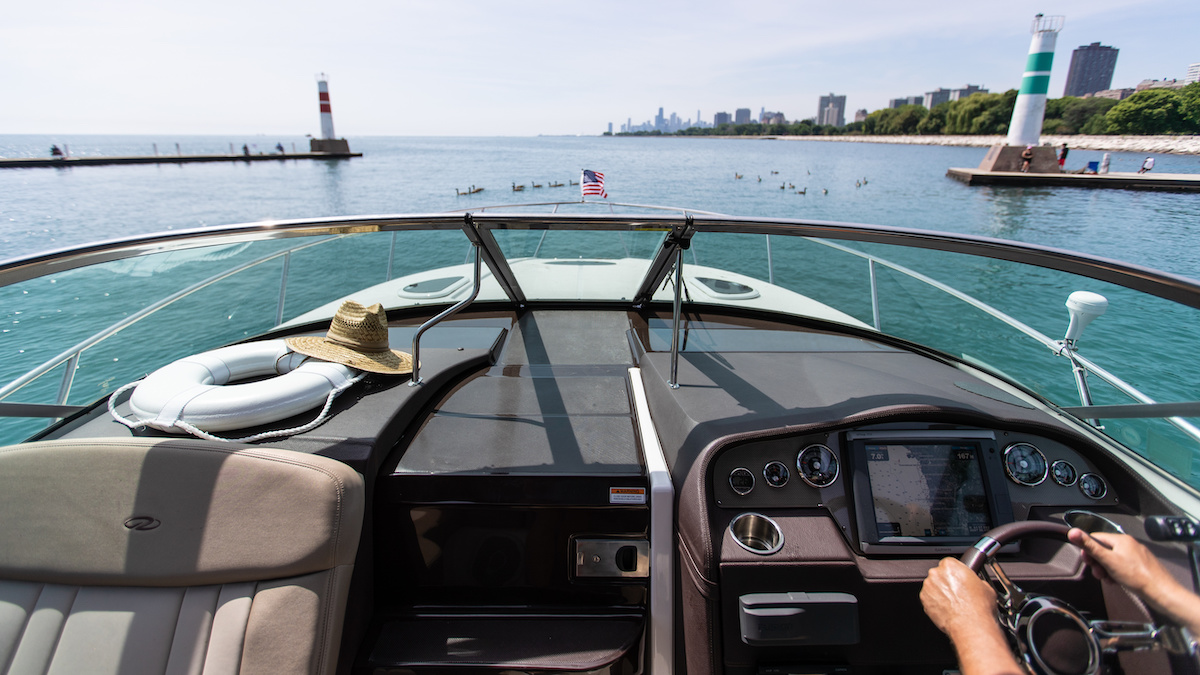
If you're interested in operating a boat, you'll need to start out by securing a boat license. Each state determines the requirements for operating a powerboat, sailboat , or personal watercraft (PWC) on the waters in its jurisdiction. Most require some boating safety and education certificate, which may be called a boating license.
In most cases, the boat license course can be completed online and is followed by a boat license test that is also completed online. The boating safety certificate courses are less comprehensive than those for an automobile driver's license; for example, no on-water driver's education is usually required.
Follow these simple steps to get your boating license :
- Research the boater education requirements for your state
- Complete an online or in-person boating safety course
- Successfully pass the boating license test
- Submit payment after course completion
- Keep your boat license or completion certificate when you're on the water.
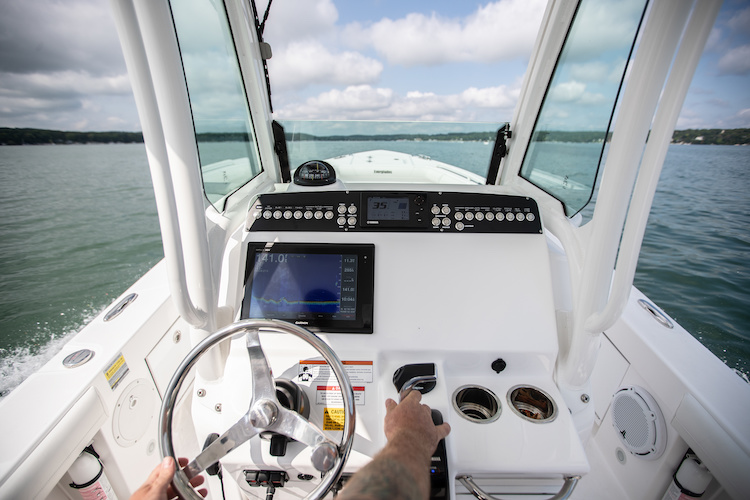
What Are the Laws and Boat Licenses by State?
If you buy a new boat and are a first-time boat owner, your marine dealer can give you information on how to get a boating license in your state. A good resource for state-by-state information is the National Association of Boating Law Administrators (NASBLA) which has a webpage with the basic training requirements for each state. Each state has its boating education requirements available on a website, usually in areas related to natural resources or transportation.
By visiting resources like Boat-Ed.com and BoaterExam.com , you'll find links to the approved online boating courses available for each state and the boating education requirements for each state.
Only some states offer an online course. For example, Connecticut only offers in-person training hosted at sites across the state, and the classes are at least eight hours long and range between two and four sessions.
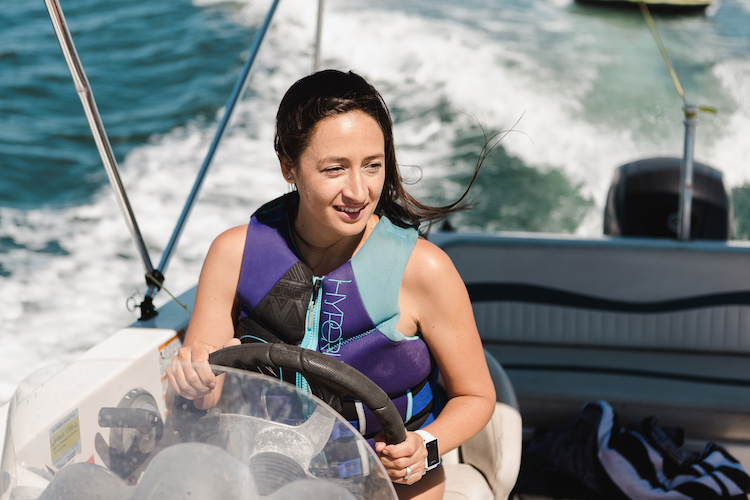
How to Take a Boating License Course
A third party administers the online boating education or license course for most states, and there may be a fee of $29 to $50, usually paid after you've completed the course. The state may also charge an administrative fee. The BoatUS Foundation offers free boating license courses for 35 states.
The online course is designed to take about three hours to complete and is set up in sections or chapters. You don't have to complete the entire course in one sitting; you can complete a chapter or two, log off, and then return later to the point you left. The course is structured to prevent you from simply clicking through the study sections to get to the exam. After each section, a review exam must be completed and passed before you can move on to the next section.
These courses aren't designed to make passing difficult; the point is to raise awareness by presenting information on every aspect of boating. The course will cover boating basics and terminology, navigation rules, state boating regulations, handling boating emergencies, and how to enjoy watersports safely.
After you complete the course, you'll be ready to take the exam. If you pass the exam, you can print your boating license and be prepared to hit the water.
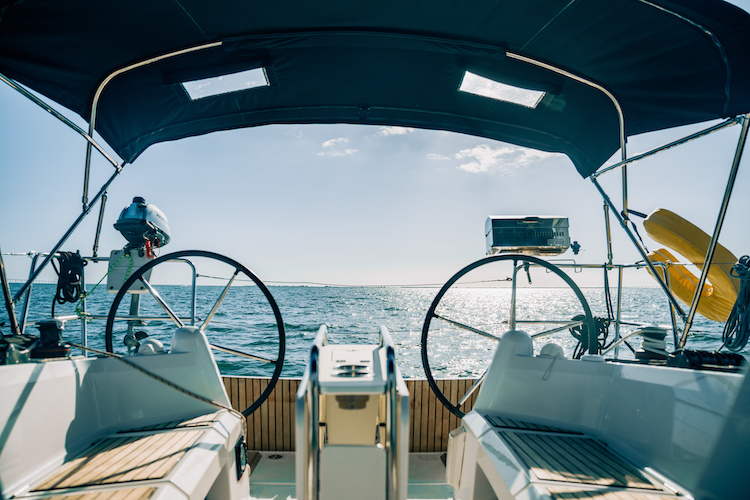

What Are the Boating Education Requirements?
Boating education requirements vary widely by state. In Wisconsin, for example, you are required to carry a Wisconsin Boating Safety Education Certificate if you are at least 16 years old, born on or after Jan. 1, 1989, and will be operating a motorboat or PWC in Wisconsin.
The rules are very different in Oklahoma; a boating education certificate is only required if you are 12 to 15 years old and will be operating a boat or PWC over ten hp or a sailboat 16 feet or longer. Each state also regulates the boating license age for those under the age of 16 to 18. Some states recognize the boating license issued by another state.
Still, it is always the boat owner's responsibility to know the boating license requirements for the state where they operate their boat.
Frequently Asked Questions
Do you need a boating license to drive a boat?
Each state regulates boating education and licensing requirements. Some states require all boaters to have a license or certificate, while others have age limits for licensing.
Do you need a boating license to rent a boat?
Once again, each state regulates boating education and licensing requirements. Some states require all boaters to have a license or certificate, while others have age limits for licensing.
How much is a boating license?
The BoatUS Foundation offers free boating license courses for 35 states. Other providers offer the course and exam for a fee of $29 to $50, and the state may add a registration fee.
Do boating licenses expire?
Each state regulates boating education and licensing requirements. Check with your state for specific licensing information.
Do you need a boating license for a personal watercraft (PWC) ?
Each state regulates boating education and licensing requirements, and most apply their boating license regulations to personal watercraft. Some states have a separate education program and license for personal watercraft . Check with your state for specific licensing information.
Searching for more information on boating education and ownership requirements? Read these posts:
- Register Your Boat Online
- Insuring Your Boat
- Safe Boating Tips
Editor’s Note: This article was updated in January 2023.

Join Our Newsletter!
Get community news, buying bargains, and how-to guides at your fingertips.

CAPTAIN'S LICENSE
We recommend that you get the best license you qualify for!
WHY GET A CAPTAIN'S LICENSE ?
- Under Construction
This will be updated shortly. Thanks for your patience.
Ask our team, 1915 south andrews avenue, fort lauderdale, fl 33316, +1-954-525-1014 | +1-888-839-5025 (toll free), site map | privacy notice | cookie policy | accessibility notice, 1915 south andrews avenue, fort lauderdale, fl 33316 +1-954-525-1014 +1-888-839-5025 (toll free).
- Certificates of Competence
- RYA Yachtmaster
What is an RYA Yachtmaster?
The RYA Yachtmaster® Certificate of Competence is often the ultimate aim of aspiring skippers. It is a well known, highly respected qualification worldwide, proving your experience and competence as a skipper. Unlike other qualifications in the cruising programme, there is no formal training course to become an RYA Yachtmaster. Instead, provided you have sufficient experience, certification and seatime, you can put yourself forward for an exam to test your skills and knowledge. There are a number of RYA navigation courses that will help you prepare for your exam. Many RYA Yachtmaster candidates also choose to book themselves into an RYA training centre for some specialised exam preparation training, but this is not compulsory.
You are capable of coastal passages
You are competent to undertake passages up to 150 miles offshore
You have the knowledge and experience to sail worldwide
- Arranging your exam
The Coastal and Offshore exams are practical tests afloat, and the Ocean is an oral exam. Find out more about qualifying passages, exam fees and how to book.
With an RYA Yachtmaster Coastal, Offshore or Ocean Certificate of Competence you can start a career at sea.
You'll need to have the appropriate qualification for the vessel and area of operation.
If you want to work commercially, you'll need a commercial endorsement.
Find out more about other RYA professional qualifications.
- Getting the most from a Yachtmaster Fast Track course
Can you really become an RYA Yachtmaster in as little as 14 weeks? Check out our top tips for getting the most from a Yachtmaster Fast Track course...

How to Gain a Boating and Sailing License in the USA
How can an american gain an international sailing and boating license.
NauticEd issues the internationally accepted sailing license, the SLC. Learn about the SLC here below.
At NauticEd, we help people reach their sailing goals and potential. Not surprisingly, most people would like to go bareboat charting on a sailing vacation. The perceived roadblock for Americans is presenting a recognized government boating license from their home country. The United States is unique in the world because the federal government mandated that the States themselves regulate and issue recreational boating licenses.
So here is the official way that boating licensing is controlled in the USA:
“The National Association of State Boating Law Administrators (NASBLA) in partnership with individual states, U.S. Territories, and the District of Columbia (DC) is recognized by the United States Coast Guard as THE OFFICIAL national entity to approve power and motorized sail boating courses resulting in the issuance of boating education cards or boat operator licenses of individual states, districts, and territories of the United States of America.”
The statement above is seen in the NASBLA International Proclamation here .
In other words, in order to legally go boating in the USA, you must adhere to your individual State’s law. Each state has authorized NASBLA as the SOLE organization to issue a boating license. Thus, if you hold a NASBLA state boating license then you, by default, hold a USA boating license.
Internationally, in general, if you hold a boating license in your home country then it is respected and recognized for short-term boating in another country. But a legal national boating license still does not relinquish the American sailor from establishing their competence to sail a boat. Yacht charter companies still require a legal boating license accompanying an appropriate sailing resume. Since NauticEd is the master at creating and training bareboat sailing competence, we sought out a master partner who issues the NASBLA state boating license. Combining the legal USA boating license with proof of competence meets all the requirements for international bareboat chartering on a sailing vacation.
Ok, so the legal license aspect is taken care of with NASBLA. What about proof of competence?
NauticEd issues Certificates of Competence by following the American National Standard for on-water sailing assessment. This National Standard program was funded by the United States Coast Guard and approved by ANSI (American National Standards Institute) in May 2017. A student seeking international recognition for competence needs to hold a Certificate of Competence whereupon the American National Standards badge is embossed. This is achieved by having an approved American National Standards Instructor/Assessor assess and pass the student under the guidelines of the standard. The standard does not only require practical demonstration of competence but it also requires an understanding of the theory. So there can not be just practical training on the water. There must be an accompanying theory-based course that teaches the basics of the Standards conforming to practical standards.
This 2017 approach is vastly different from previous practices in the USA. Previously, sailing certificates were handed out by associations more like a “Certificate of Attendance” rather than a true Certificate of Competence. An instructor would run a student through a weekend of instruction and that was it. Now, an Instructor/Assessor is required to do an assessment of the student’s skills under the new American National Standard using a rubric method of assessment. The rubric method flushes out quickly where weakness in demonstrating the skill is exhibited. If weakness is demonstrated in a skill, then either more training is required or the student is assigned a crew level competence award instead of skipper competence.
NauticEd moved quickly to embrace the American National Standards as soon as they were publically released. Built into the NauticEd system now are approved American National Standards instructors and schools as well as seamless integration into the software and theory courses to match. As soon as a student is deemed practically competent under the American National Standard, the badge is embossed onto their real-time cloud-based PDF downloadable Certificate of Competence.
Summary of the Above
- Legal License: NASBLA State Boating License.
- Day Sailing Competence – Theory: Online NauticEd Skipper and Skipper Small Keelboat Courses. The content of which conforms to the American National Standard.
- Day Sailing Competence – Practical: American National Standards Training and Assessment by a NauticEd National Standards Approved Skipper Rank Instructor/Assessor
- Bareboat Sailing Competence – Theory: Online Bareboat Charter Master Courses. The content of which conforms to the American National Standard and the requirements of yacht charter companies worldwide.
- Bareboat Sailing Competence – Practical: American National Standards Training and Assessment PLUS Bareboat Competence Assessment by a NauticEd National Standards Approved Bareboat Charter Master Rank Instructor/Assessor
Who Issues the NASBLA License?
BoatUS is a free provider for the NASBLA boating license.
Here is how to gain a FREE NASBLA approved boating license that works in every State and Territory in the USA.
- Go to https://www.boatus.org/free/
- Select the State or territory
- Complete the requirements to pass the course
You will then be issued a State Boater Licence which meets the USA federal and the individual State’s legal requirements for boating.
Once you have completed the NASBLA course, sign-in to NauticEd and under the International License macro button, upload your Boat US state boater license card to NauticEd
The license from one state or territory is valid in all states and territories, and thus internationally under the International Proclamation above.
Putting it all Together
NauticEd coined this the Sailing License and Credentials (SLC TM ). The SLC, as above, meets the legal and sailing resume requirements. The SLC is available worldwide to anyone who meets the following:
- hold a valid national government boating endorsed license (NASBLA, for Americans)
- sufficiently document on-the-water sailing experience, on a properly sized vessel logged in your NauticEd logbook
- be assessed to the ICC/SLC standard (Bareboat Charter Master Standard) for on-the-water sailing competence by a NauticEd approved SLC Assessor*
- complete and pass the NauticEd Bareboat Charter Master bundle of courses (at least 40 hours of theory study including Coastal and Electronic Navigation)
- complete a 100 question test on all aspects of skippering, sailing, bareboat chartering, and navigation (The NauticEd SLC Exam, available online)
*these Assessors have been vetted by NauticEd to conform to the American National Standards standards for sailing training and assessment.
Specific Instructions:
- Signin to NauticEd
- Go to the International Sailing License marco button
- Upload your Boat US state boater license card to NauticEd
- Gain the NauticEd Bareboat Charter Master Rank
- Complete the NauticEd SLC exam
- Pass the on-the-water assessment for bareboat charter by a NauticEd SLC qualified assessor
NauticEd will then issue you with a digital SLC card with a unique number.
The number is entered on this page www.nauticed.org/SLC which shows to anyone inquiring about your Sailing License and Credentials.
- Recent Posts
- TAKE THE FRIGGIN WHEEL! Free Sailing Emotional Intelligence Podcast - June 24, 2024
- New England North Shore Sailing Courses and Vacation - June 22, 2024
- Boating’s Deadly Dozen – The Top Causes of Accidents on the Water - June 18, 2024
You might also like
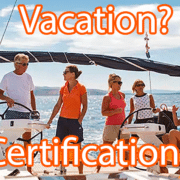
TWEET ABOUT

FIGHT CHILDHOOD CANCER
NauticEd is a fully recognized education and certification platform for sailing students combining online and on-the-water real instruction ( and now VR ). NauticEd offers +24 online courses , a free sailor's toolkit that includes 2 free courses, and six ranks of certification – all integrated into NauticEd’s proprietary platform. The USCG and NASBLA recognize NauticEd as having met the established American National Standards. Learn more at www.nauticed.org .

The NauticEd Vacations team are Expert Global Yacht Charter Agents – when you book a sailing vacation or bareboat charter through NauticEd, we don’t charge you a fee – we often save you money since we can compare prices from all yacht charter companies. PLUS, we can give you advice on which destination or charter company will suit your needs best. Inquire about a Sailing Vacation or Charter .
Online Sailing Courses Sailing Vacations | Charters Practical Sailing Courses Sailing Certification | License
Sign up for 2 FREE Sailing Courses Try sailing in Virtual Reality! Gift a Friend a Sailing Course Sailing Events | Opportunities
About NauticEd Contact Us NauticEd Support Privacy Policy
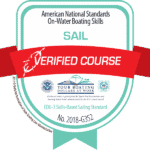
INTERNATIONAL SAILING LICENSE AND CREDENTIALS (SLC™)
Enter the slc number on the holder's card or their email address to verify its authenticity and view their sailing resume, how to gain the slc™.
How to gain your SLC Mediterranean Sailing License
WHAT IS THE SLC™
The International Sailing License and Credentials (SLC) is a recreational sailing license valid for all yacht charter companies worldwide including Europe and the Seychelles. To gain an SLC, the candidate must take online theroy knowledge self-paced classes, log previous sufficient sailing experience on boats of reasonably similar size, and demonstrate practical sailing skills according to internationally established sailing standards.
- If you are verifying an SLC document that a client has presented to you, enter their SLC number above
- NauticEd is a United States Coast Guard recognized Sailing Education Body and recognized under the American National Standards by this official letter of recognition
ABOUT THE SLC™
Sufficient documented and recent experience.
An SLC holder must have logged a minimum of 50 days of sailing, 25 of which must be as master of the vessel. Additionally, the SLC card shows the vessel size endorsement. This size is calculated as the greater of either: 10 feet (3 m) greater than the largest size of vessel the holder has sailed as master of the vessel at least 5 times.
In addition to the above, when issued or re-issued, the holder must have sailed at least 10 times within the past two years or 5 times in the past year.
Practical Competence to Internationally Recognized Standards
Gaining an SLC requires an on-the-water assessment of the candidates sailing skills and knowledge. The requirements for passing the SLC assessment exceeds the requirements for the International Certificate of Competence (ICC) as well as the American National Standards. This assessment must be completed by an SLC qualified instructor who verifies the student's competence for international bareboat charter worthiness including navigation. See the SLC Sailing License Assessment rubrics here .
International Sailing Theory Knowledge and Testing
An SLC holder has completed a minimum of 40 hours of international sailing theory education and testing - namely, the NauticEd Bareboat Charter Master Bundle of courses . Topics include Skippering, Docking and Maneuvering a Sailboat Under Power, Coastal Navigation, Electronic Navigation, Anchoring, and Bareboat Chartering. And if the Catamaran vessel type is checked on the SLC, the holder has taken a course on Catamaran sailing and maneuvering and logged at least 1 day of catamaran sailing in addition to the experience requirement listed above.
Verification of Theory Knowledge
In additional to the general sailing education and testing, an SLC holder has recently taken a separate and independent 100-question test to verify their theory knowledge. This test must be taken every 3 years to remain current.
Test modules include:
- Weather and Sea Conditions
- Boat Systems
- Rigging and Sails
- Collision Prevention
- Slip Departures and Returns
- Communication
- Navigation: Charts and Marks
- Navigation: Calculations
- Navigation: Tides and Current
- Navigation: Plotting
- Navigation: Electronic
- Anchoring and Mooring
- Safety and Emergencies
Logical Safety Restrictions on Vessel Size, Type, Tonnage, and Distance
The SLC states the safety restrictions placed on the holder. These restrictions are based upon the holder's real practical experience of skippering vessels in the past such as: maximum length, type, and gross tonnage of the vessel in addition to the distance allowed off shore.
WHY THE SLC
Quite frankly, there are too many organizations "selling" certifications. This endangers the holder of those certifications, their friends, their family, close by boaters, and charter-boat vessels. This practice raises insurance rates for the responsible sailors, soaks up search and rescue resources, and gives false confidence to poorly trained and inexperienced sailors.
NauticEd takes a stand for quality and ensures its students are confident and competent. Thus, the SLC. It is a verification of the Sailing License and Credentials of a worthy sailor.
This means that the holder of an SLC has:
- a valid national government boating endorsed license
- sufficient documented on-the-water sailing experience; on a properly sized vessel
- recent documented on-the-water sailing experience
- been assessed to the ICC standard for on-the-water sailing competence
- completed and passed at least 40 hours of theory study including Coastal and Electronic Navigation
- completed a 100-question test on all aspects of skippering, sailing, bareboat chartering, and navigation
- authentic credentials; all data is secured and verified online through this portal
Finally, the SLC exceeds any other international required standard for bareboat chartering. You should extend any bareboat chartering courtesy possible to the holder.
Enter the SLC number of the card holder above to view and verify their Sailing License and Credentials as well their full sailing resume.
Back to Top | How to gain your SLC Mediterranean Sailing License
BY WHOSE AUTHORITY?
NauticEd is the only government and US Coast Guard recognized sailing body in the USA.
- This international proclamation document shows that the authority NASBLA is the sole agency in charge of issuing boating licenses in the USA.
- This official verification letter shows that NASBLA recognizes and awards NauticEd as meeting the American National Standards for sailing training and assessment.
- This NASBLA verified course approval website lists the USA sailing bodies (including NauticEd) who conform to the US Coast Guard approved American National Standard.
Thus, as a government recognized sailing body, once NauticEd deems a student has met the licensing and credential requirements above, NauticEd issues the SLC. This SLC serves as a valid Sailing License accepted internationally.
How NauticEd works?
- Sailing Courses
- SLC - Sailing License
- Sailing Vacations
- Sailing Schools
- Practical Courses
- Boating Knowledge Base
- Fighting Childhood Cancer
- Free Courses Signup
- Gift a Sailing Course
- Sailing Opportunities
- Sailing Licenses and Certifications
- About the Sailing Certifications
- Sailing Blog & Helpful Articles
- NauticEd Podcast Series
- Yacht Charter Resources
- School Signup
- Instructor Signup
- Affiliate Signup
- Boat Sharing Software
- Sailing Industry Services
- Support & Contact
- Privacy Policy
WE WANT TO TRAIN ALEX SO THAT YOU HAVE AN AMAZING EXPERIENCE
Thank you for your feedback!
Boat Reviews
- Boats Specs
- Marine Pros
- Boat Insurance
- Boat Warranties
- Boat Transport
- Boat Towing
- Marine Forecasts

Your Ultimate Boating Resource

What length of boat requires a captain’s license?
Whether you’re a sailing enthusiast, a fishing aficionado, or simply love spending time on the water, owning a boat can be a fulfilling experience. However, a common question that arises for many boaters is whether or not they need a captain’s license to operate their vessel. The answer will depend on several factors, including the length of the boat, its purpose, and the specific regulations in the area where the boat is being used. This article will examine the factors that determine whether a captain’s license is required and provide guidance on how to obtain one if necessary.
Key Factors Influencing the Need for a Captain’s License
- Length of the Boat : The size of your boat plays a significant role in determining the need for a captain’s license. Generally speaking, smaller recreational vessels do not require their operators to have a captain’s license. However, boats that are 26 feet or longer, especially those being used for commercial purposes, are more likely to necessitate a license.
- Purpose of Use : If your boat is being utilized for commercial purposes, such as carrying passengers for hire or conducting fishing expeditions, you will likely be required to have a captain’s license regardless of the vessel’s length. In these situations, licensing ensures that boat operators have the necessary skills and expertise to navigate and manage the vessel safely and effectively.
- Location : Another important factor that influences the need for a captain’s license is the specific maritime regulations in the area where the boat is being operated. Different countries, states, and even local jurisdictions may have varying requirements regarding which types of boats necessitate a license. For instance, some coastal areas in the United States have stricter regulations than others. It’s essential to review local regulations and consult with relevant authorities to ensure compliance with boat licensing requirements.
How to Obtain a Captain’s License
Should you require a captain’s license to operate your boat, there are several steps you’ll need to follow to become certified:
- Select the Appropriate License : Several types of captain’s licenses are available, based on the size and purpose of the vessel you’ll be operating. For instance, a “Six-Pack” License (also known as an Operator of Uninspected Passenger Vessel License) is suitable for boats carrying up to six passengers for hire. A Master License, on the other hand, is intended for operators of larger, inspected vessels carrying more than six passengers.
- Complete the Required Maritime Training: To be eligible for a captain’s license, you’ll need to complete a U.S. Coast Guard-approved maritime training course. These courses typically cover topics like navigation, seamanship, rules of the road, and basic safety procedures. In addition, candidates for a captain’s license must have documented on-the-water experience to demonstrate their practical skills.
- Pass the Licensing Exam : After completing the requisite training, aspiring captains must pass a U.S. Coast Guard-administered examination, testing their knowledge and proficiency in the subjects covered during their training. Upon successful completion of the exam, candidates will be issued their captain’s license.
- Maintain and Renew the License: Once obtained, a captain’s license must be renewed periodically to remain valid. Additionally, license holders are typically required to complete ongoing professional development to stay current with maritime regulations and best practices.
While many recreational boats do not require a captain’s license, it’s essential to understand the specific regulations governing boat length, purpose of use, and location to ensure that you’re operating your vessel safely and legally. If your boat does require a captain’s license, don’t be discouraged. With proper maritime training and experience, you’ll be well on your way to becoming a certified captain, helping to ensure a safe and enjoyable boating experience for yourself, your passengers, and fellow mariners.
Related Questions
What type of wood is used for pier pilings, what is the difference between a dock and a floating pier, what is the proper technique for pulling a beginner wakeboarder, what does ‘no wake’ mean on a lake, what is the difference between wash and wake, is wakesurfing possible in the sea, why don’t wooden piers rot, what size wakeboard is needed, how to achieve more pop on a wakeboard, does wake surfing translate to ocean surfing, latest posts, 2024 pursuit os 445: an overview, dock your boat smoothly this summer with these tips, the billionaire’s playground: where to spot superyachts around the world, summertime snack ideas for your boating adventure, don't miss, our newsletter.
Get the latest boating tips, fishing resources and featured products in your email from BoatingWorld.com!
De-Winterize Your Boat the Right Way with These Professional Tips
10 essential tips for fishing near private property, the benefits of using a drift sock: guidance for anglers, lure fishing: secrets for imitating live bait and attracting fish, explore the untapped depths of america’s best bass fishing spots, tackle your catch-and-release adventures with these 6 tips, outboard motor maintenance: tips for keeping your engine in top shape, the essential boat tool kit: tools every boater needs, diy boat building: 8 tips and tricks for building your own vessel, the art of miniature maritime craftsmanship: ship in a bottle, antifouling paints: a guide to keeping your boat shipshape, beginner’s guide to standup paddle boarding: tips and techniques, boating for fitness: how to stay active on the water, kayak safety: how to stay safe on the water, anchoring in a kayak or canoe: how to secure your small boat, 2024 aquila 47 molokai review, 2024 sea-doo switch 13 sport review, 2024 aspen c120 review, 2024 yamaha 222xd review, 2024 sailfish 316 dc review, 2023 seavee 340z review, 2023 centurion fi23 review, gear reviews, megabass oneten max lbo jerkbait review, fortress anchors fx-7 anchoring system review, fortress anchors fx-11 anchoring system review, fortress anchors commando anchor kit review, fortress anchors aluminum anchors review, stay in touch.
To be updated with all the latest news, offers and special announcements.
- Privacy Policy
- Pontoon Boats
- Personal Watercraft
- nauticalknowhow
- Nautical Knots
- Tools and Calculators
Do You Really Need a Captain’s License? Here’s What You Need to Know
Do you need to be licensed as a captain to operate a boat? What’s the difference between a boat captain and a boat operator? How do you get a captain’s license if you need it, and how do you even know when you need one?
We get asked questions like this from people concerned they’re missing a license to operate their boat. Also, some are fearful that they may be at risk of fines from the Coast Guard or Marine Police for violating laws they didn’t even know existed.
USCG Licensing

If you operate a personal boat recreationally, you do not need a United States Coast Guard boat captain’s license.
You do need to have a captain’s license if you plan to operate a vessel commercially. That could be anything from a chartered fishing boat where clients pay you to take them out to see so they can fish, to a tour boat operator, to the captain of a massive cruise ship.
As long as you are not accepting money to operate the boat from the people on board, you’re not considered a captain. Because you are not a captain, you do not require a captain’s license for most recreational vessels under 26 feet.
What Size Boat Requires a Captain’s License?
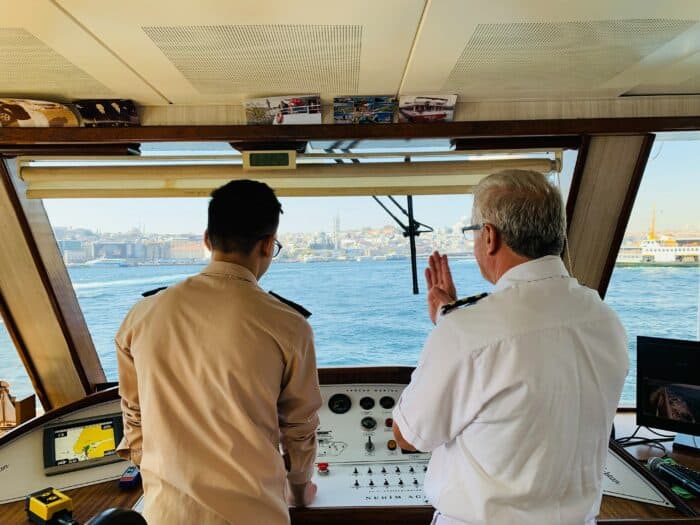
If you are operating a boat over 26 feet long, the United States Coast Guard requires a valid captain’s license. The larger a ship is, the harder it is to operate.
What is a Captain’s License?
A captain’s license is a credential issued by the United States Coast Guard when you qualify to become a boat captain. There are two main kinds of licenses you can get through the USCG. These are:
- OUPV/Six-Pack
- Master License
These licenses can be obtained after learning the coursework and passing the exam to qualify. You’ll also need to meet physical requirements, pass a background check, and have logged several boating hours to qualify. The courses cost several hundred dollars, and both could set you back over $1,000.
Once you have obtained a captain’s license, you can improve upon it later by adding endorsements for things like towing or sailing .
You must have a captain’s license to operate a boat commercially. The OUVP license allows you to operate a vessel with up to six paying passengers. The Master’s License will enable you to carry six or more.
What Does it Mean to Operate a Boat Commercially?

There are various jobs that you can do that would qualify as commercial. You don’t always have to have passengers on board to still be the boat captain who requires a license, either. Here are some examples of jobs you can do that would require you to have a captain’s license:
- Tugboat captain
- Running sea trials
- Charters for tourism or fishing
- Delivery captain transporting boats for clients
- Ferry captain
A Question from a Reader
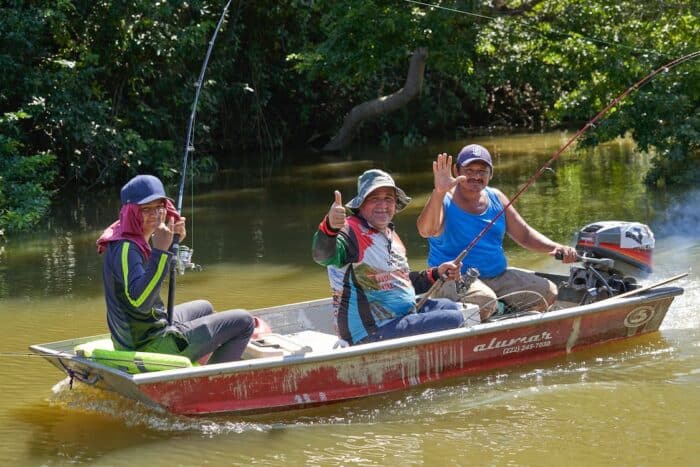
One of our readers sent us this, representing a situation that may be more common than you think. It covers that gray area where it can be unclear whether you’re working as a captain.
“A friend of mine was boarded by the Marine Police and the Coast Guard while fishing on the Chesapeake Bay. Since he had friends on board, they separated the people and asked them if they were paying him to take them out. Of course, they were not, they were just friends on a fishing trip.
What troubled me, and of course him, was the fact that he was told by the Coast Guard that if you share the cost of the fuel, that is considered a charter. Heck, most of us that fish all the time together share in the cost of the fishing with one another. Is this statement made by the Coast Guard true and could he have been fined for not having a captain’s license if his friends decided to help pay for some of his fuel costs? What regulations cover these sorts of rules, for if this is true a lot of us are in trouble.”
What is a Passenger for Hire?
It can be very confusing to know what is meant by ‘passenger for hire.’ Luckily, the term is clearly defined, as stated below.
- SEC. 506. PASSENGER FOR HIRE .
- Section 2101 of Title 46, United States Code, is amended by inserting between paragraphs (21) and (22) a new paragraph (21a) to read as follows:
- “(21a) ‘passenger for hire’ means a passenger for whom consideration is contributed as a condition of carriage on the vessel, whether directly or indirectly flowing to the owner, charterer, operator, agent, or any other person having an interest in the vessel..”
- DESCRIPTION – The determination of what constitutes the carriage of a “passenger for hire” must be made on a case by case basis. This determination is dependent upon the actual operation of a vessel and the flow of consideration as determined by the facts of each case. In general, there needs to be some form of tangible consideration or promise of performance being passed for a “passenger for hire” situation to exist.
- SEC. 507. CONSIDERATION
- Section 2101 of Title 46, United States Code, is amended by inserting between paragraphs (5) and (6) a new paragraph (5a) to read as follows:
- “(5a) ‘consideration’ means an economic benefit, inducement, right, or profit including pecuniary payment accruing to an individual, person, or entity, but not including a voluntary sharing of the actual expenses of the voyage, by monetary contribution or donation of fuel, food, beverage, or other supplies.” Additionally, employees or business clients that have not contributed for their carriage, and are carried for morale or entertainment purposes, are not considered as an exchange of consideration.
In a nutshell, this means a passenger for hire would not be on the boat if they weren’t paying to be there. They’re not a friend or family member or invited guest; they are a client or customer.
What Happens If You Operate a Commercial Vessel Without a Captain’s License?
In 2015, the United States Coast Guard began cracking down on non-commercial vessels operating as charter boats. If you get caught taking money from passengers on a vessel that isn’t licensed, there can be severe penalties. Aside from potential criminal charges that can be laid if a paying passenger were injured or killed, boat owners and operators can be fined as much as $35,000 per day for violations.
The Bottom Line
If you are operating a boat under 26 ft recreationally, you probably do not need a captain’s license. Many boaters get a captain’s license to improve their knowledge and skill set. Also, there’s some cache that comes along with being able to call yourself a captain legally.
As long as you are not charging passengers to be on your boat, then you don’t technically need to have a captain’s license. If you’re out on a boat with friends and everybody is chipping and money for gas and food, that doesn’t count as having paying passengers. In that case, you would not need a boat captain’s license either.
About Chris
Outdoors, I’m in my element, especially in the water. I know the importance of being geared up for anything. I do the deep digital dive, researching gear, boats and knowhow and love keeping my readership at the helm of their passions.
Categories : nauticalknowhow
Todd Feinroth on October 25, 2023
If I have a 24 foot powerboat and I want to take paying passengers do I still need an OUPV license?
Leave a Reply Cancel reply
Your email address will not be published. Required fields are marked *
Save my name, email, and website in this browser for the next time I comment.
More in nauticalknowhow

How to Tie a Boat to a Dock
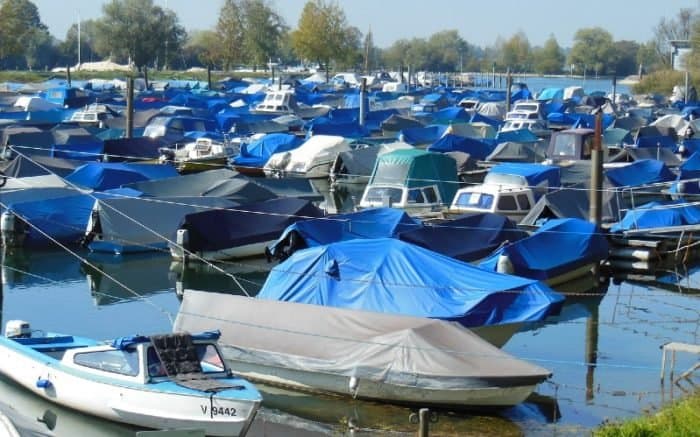
How to Clean a Boat Cover
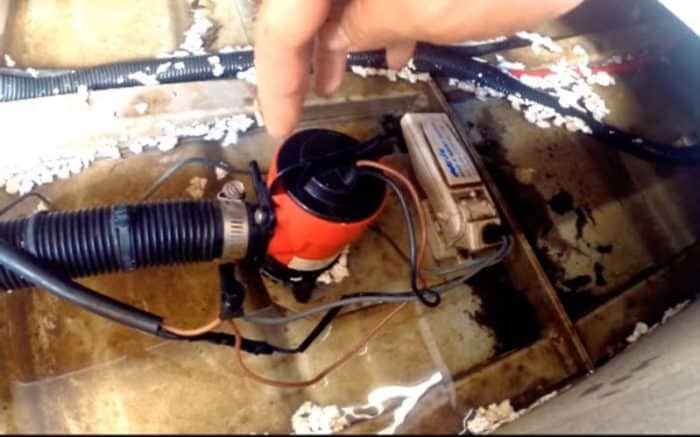
Everything You Need to Know About Your Boat’s Bilge Pump

4 Ways to Tie Your Boat Shoes

The People’s Poncho Review and Ratings

Oru Lake Kayak Review

What Is A Gunwale?

131 of the Best Hawaiian Boat Names
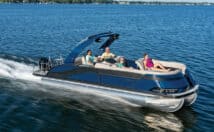
167 Patriotic Boat Names
About boatsafe.
Established in 1998, BoatSafe is your independent guide into the world of boating, fishing, and watersports. We provide expert insights and detailed guides to help you find products tailored to your needs and budget.
Contact Boatsafe
- Address: 4021 West Walnut Street. Rogers, AR 72756
- Phone: (479)339-4795
- Email: [email protected]
Site Navigation
- How We Test
- Corrections Policy
- Privacy Policy
- Terms & Conditions
- Editorial Policy
- Affiliate Disclosure
Our Reviews
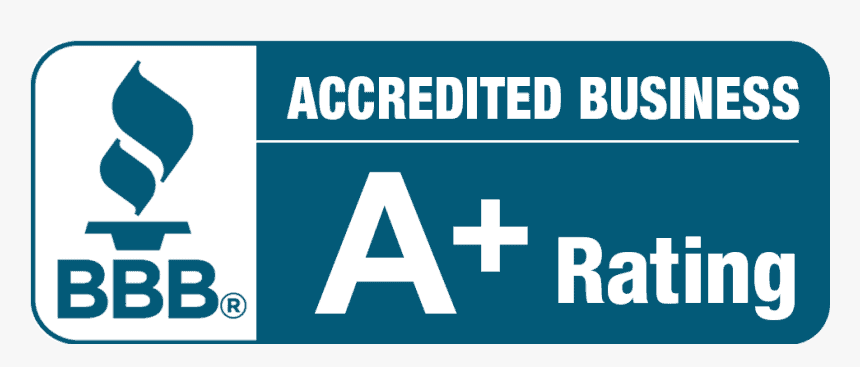
All content is © Copyright 2024. All rights reserved.

Do You Need a Yacht License? (A Look at What You Need to Know)

Do you love sailing on the open waters? Have you ever thought about owning a yacht and exploring the ocean? If so, you may have wondered if you need a yacht license.
Well, wonder no more! In this article, we will discuss the definition of a yacht, the requirements for obtaining a yacht license in the United States and abroad, age requirements, and the benefits of having a license.
Get ready to explore the seas like never before and learn what it takes to sail the world in your own yacht!.
Table of Contents
Short Answer
In general, a yacht license is not required to operate a yacht.
However, certain countries may have specific laws requiring a yacht license or equivalent certification to operate a yacht.
Additionally, certain bodies of water may have specific regulations that require a yacht license or certification to operate a yacht in those areas.
It is best to check with the local authorities to see what requirements may apply.
Definition of a Yacht
When it comes to yachts, there is no universal definition.
Generally speaking, a yacht is a large and luxurious recreational vessel used for recreational sailing and/or cruising.
Yachts are typically powered by sails and/or an engine and are often equipped with a variety of amenities, such as air conditioning , a kitchen, and a galley.
Yachts come in many shapes and sizes; from small, open-decked vessels to large, luxurious vessels with several decks.
Yachts can be used for a variety of recreational activities, such as fishing, diving, sailing, sightseeing, and more.
In addition, many yachts are also used for business or charter purposes.
Do You Need a Yacht License?

When it comes to operating a yacht, many people wonder if they need a license to do so.
The answer is that it depends on the size and type of vessel, as well as the country or area in which you are sailing.
Generally, if you are operating a vessel that is 26 feet or longer, then you will need to obtain a license or certificate in order to legally operate it.
In the United States, the U.
Coast Guard requires that anyone wishing to operate a vessel of this size must obtain a license.
This license can be obtained through a Coast Guard-approved training program.
Additionally, many countries require that those operating yachts must be at least 16 years of age or older.
It’s important to note that the regulations and requirements for obtaining a yacht license can vary from country to country.
Therefore, in order to determine whether or not you need a yacht license, you should check the laws and regulations in your area.
It’s also a good idea to consult with a local maritime lawyer to make sure you are in compliance with all local laws and regulations before you set sail.
In addition to obtaining the proper license or certificate, you should also make sure that you have the necessary equipment and safety gear onboard your vessel.
This includes life jackets, flares, a fire extinguisher, and a signaling device.
By having all the necessary safety gear, you can ensure that your voyage is as safe and enjoyable as possible.
Finally, it’s important to remember that having a yacht license is only one part of being a responsible boat owner.
You should also practice safe boating and follow all applicable laws and regulations when operating your vessel.
Overall, obtaining a yacht license is an important step for responsible boat owners.
By taking the time to learn the laws and regulations in your local area, and obtaining the necessary license or certificate, you can ensure that your sailing experience is safe and enjoyable.
U.S. Coast Guard Requirements
Coast Guard is the governing body that regulates the operation of vessels and requires anyone wishing to operate a yacht 26 feet or longer to obtain a license.
This license is usually obtained through a Coast Guard-approved training program.
Depending on the type of vessel and waters you are sailing in, you may need additional qualifications.
For example, if you are sailing in open ocean waters, you may need a license for a motor vessel of at least 50 gross tons.
The Coast Guard also requires that anyone operating a yacht be age 16 or older and have a valid drivers license.
Additionally, they require that you have a valid certificate of safety inspection and a valid certificate of inspection for the vessel.
The Coast Guard also requires that you carry appropriate safety equipment on board, such as life jackets, fire extinguishers, signaling devices, and emergency flares.
The Coast Guard also maintains a list of approved courses and certifications that you may need to obtain in order to legally operate a yacht.
These courses will vary depending on the type of vessel you are operating and the waters you are sailing in.
It is important to check with your local Coast Guard office for a list of approved courses and certifications.
Finally, the Coast Guard also requires that all vessels have a valid registration and that the owner have proof of insurance.
Additionally, the Coast Guard requires that all vessels display their registration number and name clearly on their hull.
This information must be clearly visible from any angle, and must be placed on the starboard side of the vessel.
By familiarizing yourself with the U.
Coast Guard’s requirements for operating a yacht, you can ensure that you are legally operating your vessel in a safe manner.
Additionally, it is important to check with your local Coast Guard office to determine if there are any additional requirements that you must meet in order to legally operate a yacht.
Other Countries’ Requirements

When it comes to yacht licenses, the requirements may vary depending on the country in which you are sailing.
For instance, in many parts of Europe, a yacht license is required for anyone wishing to operate a yacht over a certain size.
This can range from 8 to 15 meters, depending on the country.
In the United Kingdom, anyone wishing to operate a motorboat or sailboat over 7 meters in length must obtain a license.
Additionally, in some countries, such as France, the license requirements may vary depending on the waters you are sailing in.
For instance, if you are sailing in coastal waters, you must obtain a Coast Guard Certificate of Competence, while if you are sailing in inland waters, you must obtain an Inland Waterways Certificate.
In Asia, the requirements for a yacht license may also vary depending on the country.
For instance, in Thailand, anyone wishing to operate a yacht must obtain a license from the Thai Royal Navy.
Additionally, in Malaysia, a license is required for anyone wishing to operate a boat over 10 meters in length.
In Singapore, a license is required for anyone wishing to operate a boat over 4 meters in length.
Ultimately, to determine if you need a yacht license in any country, you should check the laws and regulations in the area.
In addition to individual country requirements, there are also international regulations that may apply to yacht licenses.
For instance, the International Maritime Organization (IMO) requires that all vessels over 24 meters in length must have a Ship Security Officer (SSO) on board at all times.
This SSO must be certified in accordance with the IMO’s International Ship Security Certificate (ISSC) regulations.
Additionally, certain countries may also require that those operating yachts be at least 16 years of age or older.
Ultimately, when it comes to determining if you need a yacht license, you should check the laws and regulations in your area.
Different countries and even different regions may have different requirements, so it is important to do your research before heading out on the water.
Additionally, if you are planning to sail internationally, you should also check the international regulations that may apply to you and your vessel.
Age Requirements
When it comes to determining whether or not you need a yacht license, it is important to consider the age requirements in your area.
Depending on the country, the requirements may vary.
For instance, in the United States, the U.
Coast Guard requires that anyone wishing to operate a vessel 26 feet or longer obtain a license.
Additionally, many countries require that those operating yachts be at least 16 years of age or older.
In some countries, such as the United Kingdom, the age requirement for operating a yacht is higher.
For example, to legally operate a yacht, you must be at least 17 years of age or older.
It should be noted that children under the age of 16 may still be able to operate a vessel, but only with the permission and supervision of a person who is at least 16 years of age.
In addition to the age requirements, it is also important to consider the type of vessel you will be operating, as this can affect the licensing requirements.
For instance, in some countries, such as the United Kingdom, you are required to have a licence if you are operating a motor vessel over 6 metres in length.
Furthermore, if you are operating a vessel that is over 10 metres in length, you may be required to obtain a more specialised licence, such as a Boatmasters Certificate of Competence.
Ultimately, when it comes to determining if you need a yacht license, it is important to consider the age requirements, the type of vessel you will be operating, and the laws and regulations in your area.
By taking the time to research the licensing requirements, you can ensure that you are legally operating your vessel.
How to Obtain a Yacht License

Obtaining a yacht license is not always a difficult process, but it does involve a certain amount of training and preparation.
Depending on the country and the size of the boat, the process can vary.
Coast Guard requires that anyone wishing to operate a vessel 26 feet or longer obtain a license, which is usually obtained through a Coast Guard-approved training program.
Generally speaking, this program includes a number of steps, such as completing a written exam, taking a practical test, and completing a physical fitness test.
It is also important to note that many countries require that those operating yachts be at least 16 years of age or older.
In addition to the training and physical requirements, it is important to note that in order to obtain a yacht license, you will also need to pay a fee.
The exact amount of the fee can vary depending on the country and the size of the yacht.
, for instance, the fees range from $30 to $250 depending on the size of the vessel and the type of license.
Additionally, some countries may require additional fees for the practical and written tests.
Finally, it is important to note that in order to maintain a valid yacht license, you will need to take refresher courses on a regular basis.
This is generally done through a Coast Guard-approved training program and is typically required every five years.
The exact requirements of the refresher course can vary from country to country, but it typically includes a written exam and a practical test.
Benefits of Having a Yacht License
Having a yacht license can be a great benefit for anyone who wishes to operate a yacht.
Not only will it ensure that you are legally allowed to operate the vessel, but it can also provide many other benefits.
For instance, having a license will give you the knowledge and experience needed to safely and confidently navigate the waters, as well as the ability to make informed decisions in challenging situations.
Additionally, having a license can give you access to more exclusive activities and locations, such as races and private ports.
Finally, you may be able to obtain insurance or discounts on marina fees if you have a license.
Ultimately, having a yacht license can provide important knowledge and advantages for anyone who wishes to operate a boat.
Final Thoughts
In the end, whether or not you need a yacht license depends on the size and type of vessel you are operating, and the laws of the country in which you are sailing.
, the Coast Guard requires a license for vessels 26 feet or longer, and many countries have age requirements for operating yachts.
To ensure that you are following the law, you should always check with the local authorities before setting sail.
With a yacht license, you can enjoy a safe and hassle-free journey, so if you’re considering taking up yachting, make sure you have the right credentials.
James Frami
At the age of 15, he and four other friends from his neighborhood constructed their first boat. He has been sailing for almost 30 years and has a wealth of knowledge that he wants to share with others.
Recent Posts
When Was Banana Boat Song Released? (HISTORICAL INSIGHTS)
The "Banana Boat Song" was released in 1956 by Harry Belafonte. This calypso-style song, also known as "Day-O," became a huge hit and remains popular to this day for its catchy tune and upbeat...
How to Make Banana Boat Smoothie King? (DELICIOUS RECIPE REVEALED)
To make a Banana Boat Smoothie King smoothie at home, start by gathering the ingredients: a ripe banana, peanut butter, chocolate protein powder, almond milk, and ice. Blend the banana, a scoop of...
- New Drivers License Info
- Drivers License Renew Info
- Drivers License Replace Info
- Drivers License Change Address Info
- Drivers License Change Name Info
- Suspended Drivers License
- How to Get CDL
- Physical Exam
- CDL Driving Records
- Replace CDL
- Learners Permit
- Apply for ID Card
- Renew/Replace ID Card
- Apply for Motorcycle License
- Renew Motorcycle License
- Replace Motorcycle License
- Motorcycle Manual
- International Driving Permit
- Veteran Drivers
- Senior Drivers
- Disabled Drivers
- Boating License
How to Apply for a Boating License
In many states across the U.S., a boating license is required to operate most common types of large or motorized water vessels on both waterways and open coastal waters. How to get a boating license is decided on a state by state basis as there is no national legislation for licensing requirements. It is also common for states to forgo the licensing process and to instead require residents to complete a state-approved boating program before operating most types of water vessels. Boaters living in these states are usually required to carry their proof of completion of the necessary course as a permit for boat operation.
Many states allow residents to apply for an online boating license or to enroll in an accredited web-based education program. Most states also offer residents classroom-based boat certification courses that can be taken for a minimal fee if not offered for free by the community. All boaters must meet state eligibility requirements in order to operate a water vessel in that state. Boat operators are required to replace lost licenses or education cards if they are lost or stolen. Visit your state-specific page to learn more about licensing procedures and education requirements for boaters in your state:
Select a state to begin:
Do you need a license to drive a boat in the united states.
Getting a boat license is not a requirement in every state of the U.S. In fact, many states like Tennessee, Texas and Washington state require that most boat drivers complete a state-approved boaters safety course instead of applying for a formal license. Some states require all boat operators to apply for a license or education training, while others only require drivers of a certain age to apply.
Many states separate water vessels into different classes of boats, some which require licensure and some that do not. Oftentimes, kayaks, canoes, small sailboats and similar nonmotorized watercraft do not require licensure to be operated, but exceptions do exist.
Boat License Requirements
The boating license age for boat drivers varies significantly from state to state. In many cases, boat license requirements are divided up according to age groups. The boating age to independently operate a motor vehicle is 16 years of age in West Virginia , for example, although minors from 12 to 15 years of age can drive a boat under the supervision of a licensed adult. In Tennessee, independent operators of water vessels can be as young as 12 years of age if the necessary education course has been completed.
Getting a Boat License in the U.S.
Where to get a boating license depends on where the driver lives in the United States. Boating licenses and cards are issued by state agencies on a local basis and cannot usually be requested from national entities.
How long does it take to get a boating license in most states? Because the application procedures for licenses and cards is different from state to state, the total amount of time it takes to receive certification varies also. Most states offer short classroom courses that can be completed in a day and accept online courses that last between three to eight hours in duration.
Washington state residents must take a boating course and then provide proof of completion to the Washington State Parks and Recreation Commission to be able to operate a water vessel. Boat operators residing in Wyoming do not need to apply for a license or a boat safety certificate to legally drive a water vessel in the state.
Wisconsin residents must request a special ID number from the Wisconsin Department of Natural Resources before they can sign up for any certified education program to have permission to boat in the state. Drivers must look into the specific policies of their state of residency to learn more about how to get a license in their location.
Boater Safety Courses
Boat drivers living anywhere in the United States can enroll in an online boaters safety course approved by the National Association of State Boating Law Administrators (NASBLA) to learn more about the best practices for operating a variety of types of water vessels and local regulations and policies concerning the student’s state.
Most states offer in-person boating classes, as well. These are usually taught by trained government officials or local representatives from the military. The material covered in these boating lessons can vary significantly by provider, but generally covers the same principle topics that all drivers must be familiar with before operating any type of water vessel.
A typical boating education program should teach drivers everything they need to know to stay safe while boating. Holders of a boater education card should also be aware of how to leave a minimal impact on their surrounding environment. Because boaters are held to similar laws as operators of other motor vehicles, all courses also cover important laws and consequences that boaters must know before driving in a certain state.
Renewing and Replacing an American Boating License
In states that require a license or boater safety card, it is usually required that the boater keep proof of meeting state requirements with him or her at all times when operating a water vessel. As a result, drivers who have somehow lost or destroyed their boating license must immediately apply for a replacement through the necessary channels.
Certain states require drivers to apply for a duplicate from the state government, while other states direct drivers to request a duplicate directly from the course provider. In most cases, requests for duplicate licenses must be accompanied by the appropriate fee to be correctly processed.
Do boating licenses expire at any point? Whether a boat certification expires or not depends on the type of license or education card the driver has. States that only require a boaters safety certificate do not usually have expiration dates on their permits and allow drivers to operate water vessels without worrying about renewal procedures. This is true for boat operators in Vermont , for example. States that require drivers to be official licenses to operate a boat may have expiration dates.
Boat Registration Basics
Throughout the United States, a boat registration on the state level is required by most types of larger and motorized water vessels. Applying for a boat title and registration is usually a matter of submitting an application with proof of ownership and an application fee to the department of motor vehicles or transportation of that state. Most states offer multiple submission methods for registration and title documents.
Once the registration is processed, most states offer boat registration stickers that must be attached to a specific place on the outer hull of the applicable water vessel. Boaters who fail to comply with their resident state’s DMV boat registration procedure generally face penalties similar to driving a motor vehicle without the proper documentation.
Boat operators living in Wyoming, for example, must submit a registration request once every one or three years for all motorized water vessels to the Wyoming Game and Fish Department along with the necessary application fee to meet state requirements.
Boating Rules and Regulations in the United States
Boating rules throughout the United States were created with the purpose of keeping boaters, swimmers and other enjoying the water safe while sustainably using our natural resources. Most boating regulations are created on a state by state basis, but many basic best practices are the same across state boundaries.
Many of these regulations concern making sure that water vessels meet boat requirements like having the necessary Personal Flotation Devices (PFDs) and emergency signaling systems. Examples of boating rules that are very common amongst various states include:
- All water vessels must have at least one wearable, U.S. Coast Guard (USCG)-approved life jacket on board for every person on the boat at all times.
- All life jackets must fit appropriately according to the age, weight and activity of expected occupants and be in proper, usable condition.
- All water vessels of certain classes must have at least one throwable USCG-approved personal flotation device.
- All boat passengers of any age aboard any type of personal watercraft (PWC) must wear a life jacket at all times.
- Passengers on all water vessels who are young minors must wear an USCG-approved life jacket at all times when the boat is in motion.
- All motorboats, houseboats and some other categories of water vessels must have a proper fire extinguisher on board.
- All motorized watercraft and sailboats must display the necessary lights at an appropriate strength from sunset to sunrise, visible 360 degrees.
- All motorized water vessels must have a suitable sound producing system on board to signal for help in the case of an emergency.
- Boating under the influence of drugs and/or alcohol is illegal throughout the United States. Drivers found to be operating a boat while intoxicated will face criminal penalties akin to driving a car while under the influence.
Boating License Fees
The total cost for a boating license must be confirmed with the managing state agency in the driver’s home state. Some states ask minimal boat card application fees, while others provide the service free of charge. In states where some form of boating course is required, boat operators can usually find both free and affordable options that average around $30 a course.
- Connecticut
- Massachusetts
- Mississippi
- New Hampshire
- North Carolina
- North Dakota
- Pennsylvania
- Rhode Island
- South Carolina
- South Dakota
- Washington DC
- West Virginia
- California Privacy R. Request California Opt-Out
IMAGES
VIDEO
COMMENTS
The Basics of a Captain's License. A first time applicant will need to decide while type of license to pursue. There are two types available to one applying for a new license. You may apply for a license to be an Operator of Uninspected Passenger Vessel (OUPV) or the more familiar "Six Pack" license.
Basic Captain's License Requirements. The most common captain's license is the OUPV or Six-Pack, which allows you to commercially captain a vessel with up to six passengers. To earn this license, you must: Be 18 or older. Have legal status to work in the U.S. Pass a drug test and a physical. Acquire a Transportation Worker Identification ...
This skipper's license will qualify you to captain a sailboat at sea in local waters from sunrise to sunset. Local waters are defined as 15 nautical miles, or 25 miles, from your home port, given that they are no more than 15 nautical miles from an approved safe haven. Local Waters Skipper. Holding this license, you will be qualified to ...
May 15, 2021. Owning a yacht embodies luxury, freedom, and adventure on the open waters. However, amid the allure of yacht ownership, there's a critical aspect often overlooked—the necessity of possessing a valid yacht license. This article delves into why having a license to drive a yacht is indispensable for aspiring owners.
Note that a state boating card is different from a Coast Guard Captain's license. A boat safety course qualifies you to operate your personal boat, and have your friends and family on board. A USCG license is needed when you're operating a vessel in a commercial manner. When people are paying you, you need a license to operate.
With this type of license, you can operate commercial vessels of 25, 50 or 100 tonnages — the maximum — and take more than six paying people on board as long as you meet the requirements. A Near Coastal license allows you to operate inspected and uninspected vessels on inland waters and up to 200 miles off the U.S. coast.
Watch this video to understand which captain's license is right for you. Mariners Learning System recommends pursuing the highest-level license you qualify for, whether it's the Six-Pack or the 25, 50, or 100-Ton Master License. Learn about the different types of licenses, the endorsements you can add, and how each can open up new opportunities in the boating industry.
The BoatUS Foundation offers free boating license courses for 35 states. The online course is designed to take about three hours to complete and is set up in sections or chapters. You don't have to complete the entire course in one sitting; you can complete a chapter or two, log off, and then return later to the point you left.
RYA Yachtmaster Offshore exam pre-requisites: Minimum seatime: Documented minimum sea time 1 completed on a seagoing sailing or motor yacht (as appropriate) in the last 10 years:. 50 days at sea on yachts up to 500gt 2 which may be reduced to 25 days if the candidate already holds an RYA Yachtmaster Offshore Certificate of Competence 3;; 5 days as skipper on vessels less than 24m LOA, which ...
CAPTAIN'S LICENSE. We recommend that you get the best license you qualify for! WHY GET A CAPTAIN'S LICENSE? Under Construction . This will be updated shortly. Thanks for your patience. ASK OUR TEAM. FOLLOW US: 1915 South Andrews Avenue, Fort Lauderdale, FL 33316, +1-954-525-1014 | +1-888-839-5025 (Toll Free)
The gold standard. The RYA Yachtmaster® Certificate of Competence is often the ultimate aim of aspiring skippers. It is a well known, highly respected qualification worldwide, proving your experience and competence as a skipper. Unlike other qualifications in the cruising programme, there is no formal training course to become an RYA Yachtmaster.
Upload your Boat US state boater license card to NauticEd. Gain the NauticEd Bareboat Charter Master Rank. Complete the NauticEd SLC exam. Pass the on-the-water assessment for bareboat charter by a NauticEd SLC qualified assessor. NauticEd will then issue you with a digital SLC card with a unique number.
The yacht brokerage process typically begins when a boat seller lists the yacht with a broker. Generally, the seller will agree to pay a commission to the yacht broker when the vessel sells (usually 10 percent of the boat's purchase price). This commission will be paid to the selling broker at the closing.
A captain's license is necessary to safely and legally operate a yacht of any size. It is important to note that the captain's license is not the same as a recreational boating license, and it is important to understand the difference between the two. In conclusion, the minimum size of a yacht requiring a captain's license is 25 gross tons.
WHAT IS THE SLC™. The International Sailing License and Credentials (SLC) is a recreational sailing license valid for all yacht charter companies worldwide including Europe and the Seychelles. To gain an SLC, the candidate must take online theroy knowledge self-paced classes, log previous sufficient sailing experience on boats of reasonably ...
Generally speaking, smaller recreational vessels do not require their operators to have a captain's license. However, boats that are 26 feet or longer, especially those being used for commercial purposes, are more likely to necessitate a license. Purpose of Use: If your boat is being utilized for commercial purposes, such as carrying ...
The Bottom Line. If you are operating a boat under 26 ft recreationally, you probably do not need a captain's license. Many boaters get a captain's license to improve their knowledge and skill set. Also, there's some cache that comes along with being able to call yourself a captain legally. As long as you are not charging passengers to be ...
With a yacht license, you can enjoy a safe and hassle-free journey, so if you're considering taking up yachting, make sure you have the right credentials. James Frami. At the age of 15, he and four other friends from his neighborhood constructed their first boat. He has been sailing for almost 30 years and has a wealth of knowledge that he ...
Boat License Requirements. The boating license age for boat drivers varies significantly from state to state. In many cases, boat license requirements are divided up according to age groups. The boating age to independently operate a motor vehicle is 16 years of age in West Virginia, for example, although minors from 12 to 15 years of age can ...
Elektrostal is a city in Moscow Oblast, Russia, located 58 kilometers east of Moscow. Elektrostal has about 158,000 residents. Mapcarta, the open map.
State Housing Inspectorate of the Moscow Region Elektrostal postal code 144009. See Google profile, Hours, Phone, Website and more for this business. 2.0 Cybo Score. Review on Cybo.
A Fort Lauderdale man charged with kidnapping his wife in Spain stole a license plate in his Serbia as he drove a rental car to Madrid, FBI says. ... There was a yacht incident, police say Updated ...
Top Dzerzhinsky Landmarks: See reviews and photos of sights to see in Dzerzhinsky, Russia on Tripadvisor.
Heliport information about UUDO - Orlovo, MOS, RU. Information on this site may not be accurate or current and is not valid for flight planning or navigation.